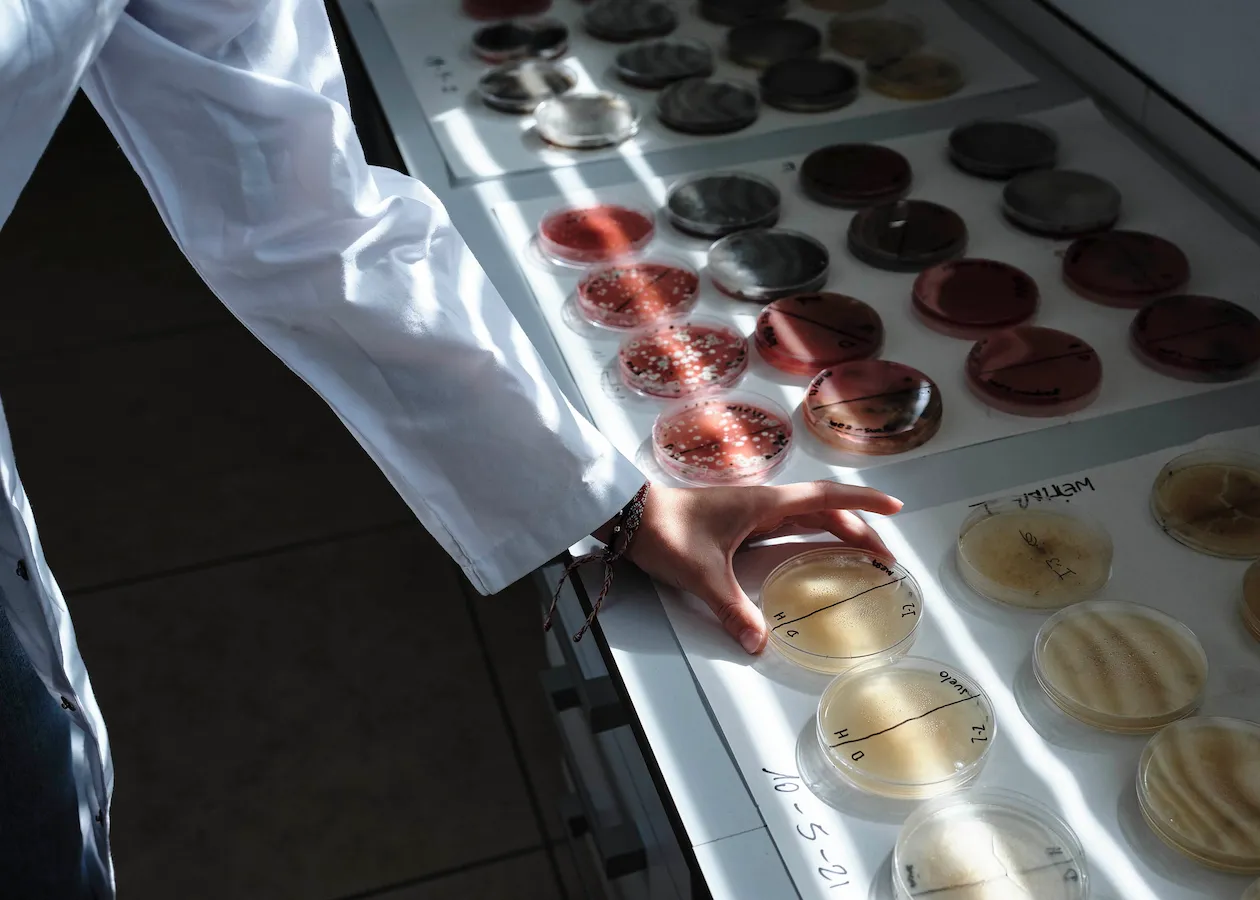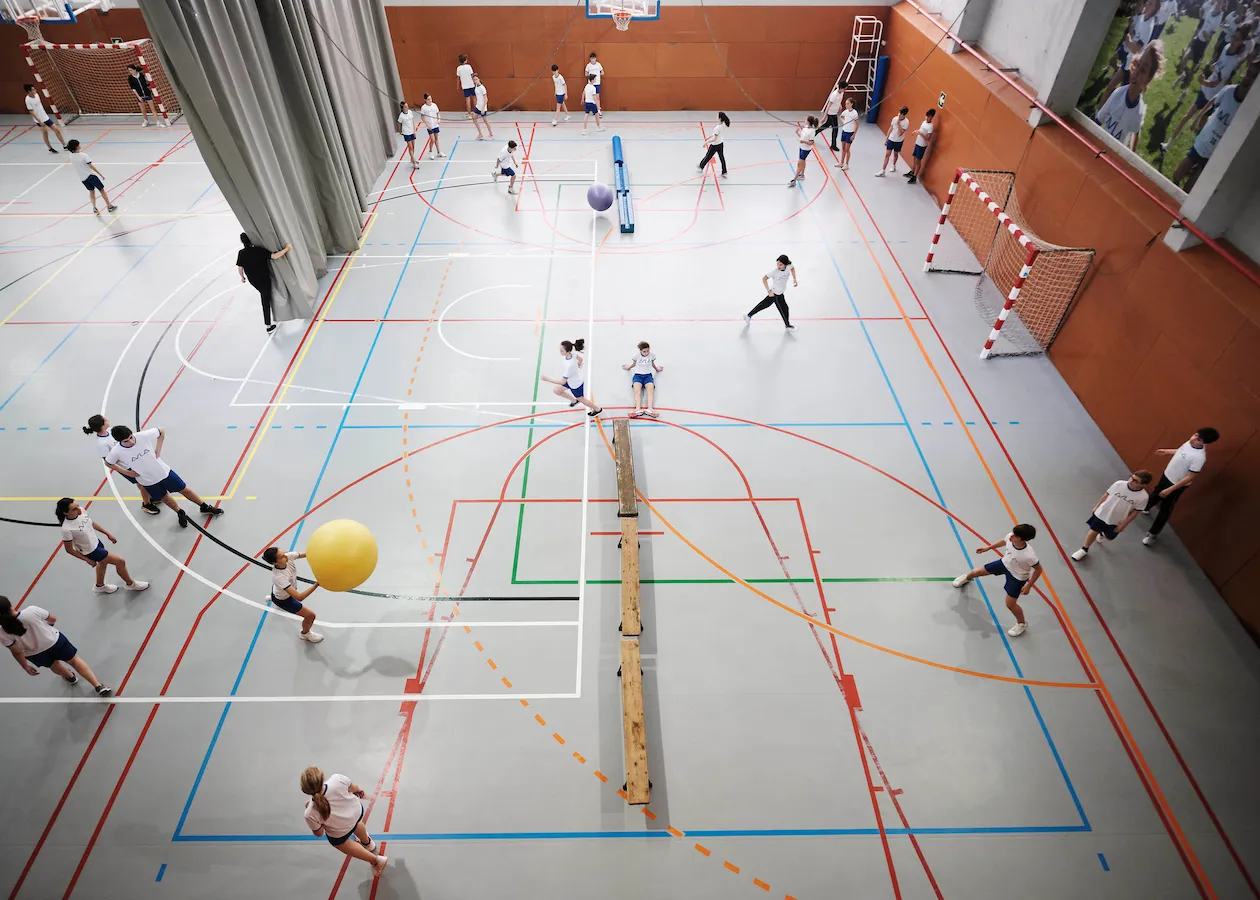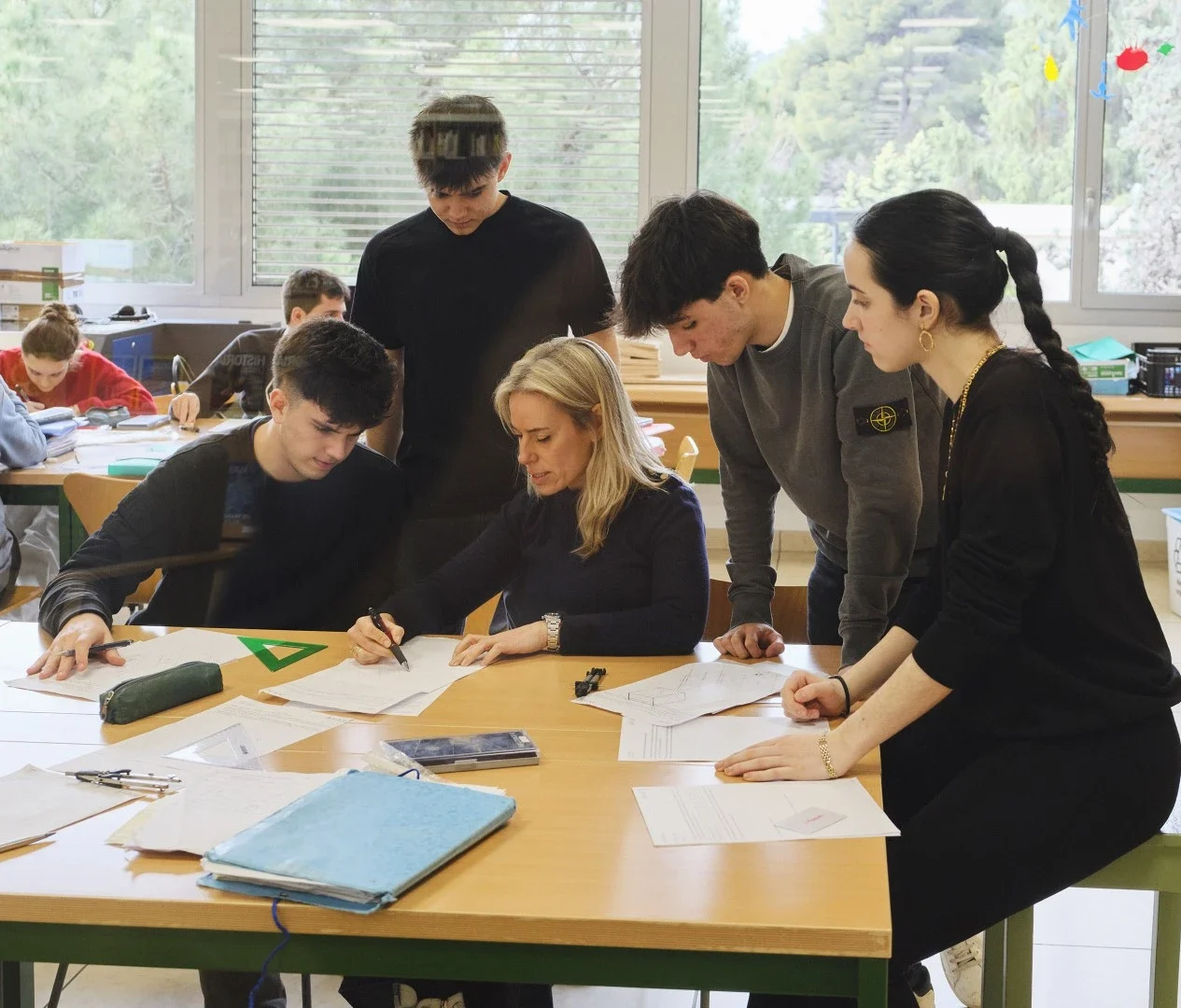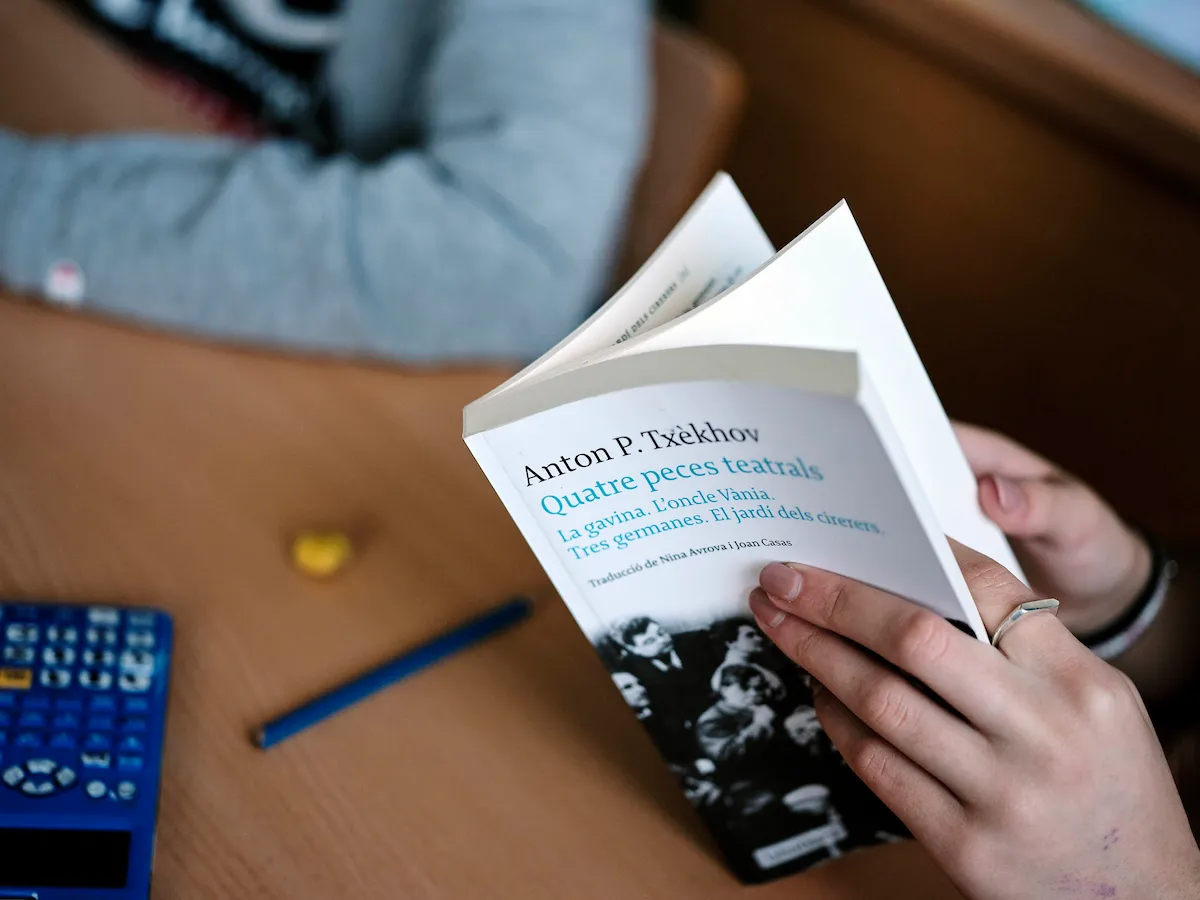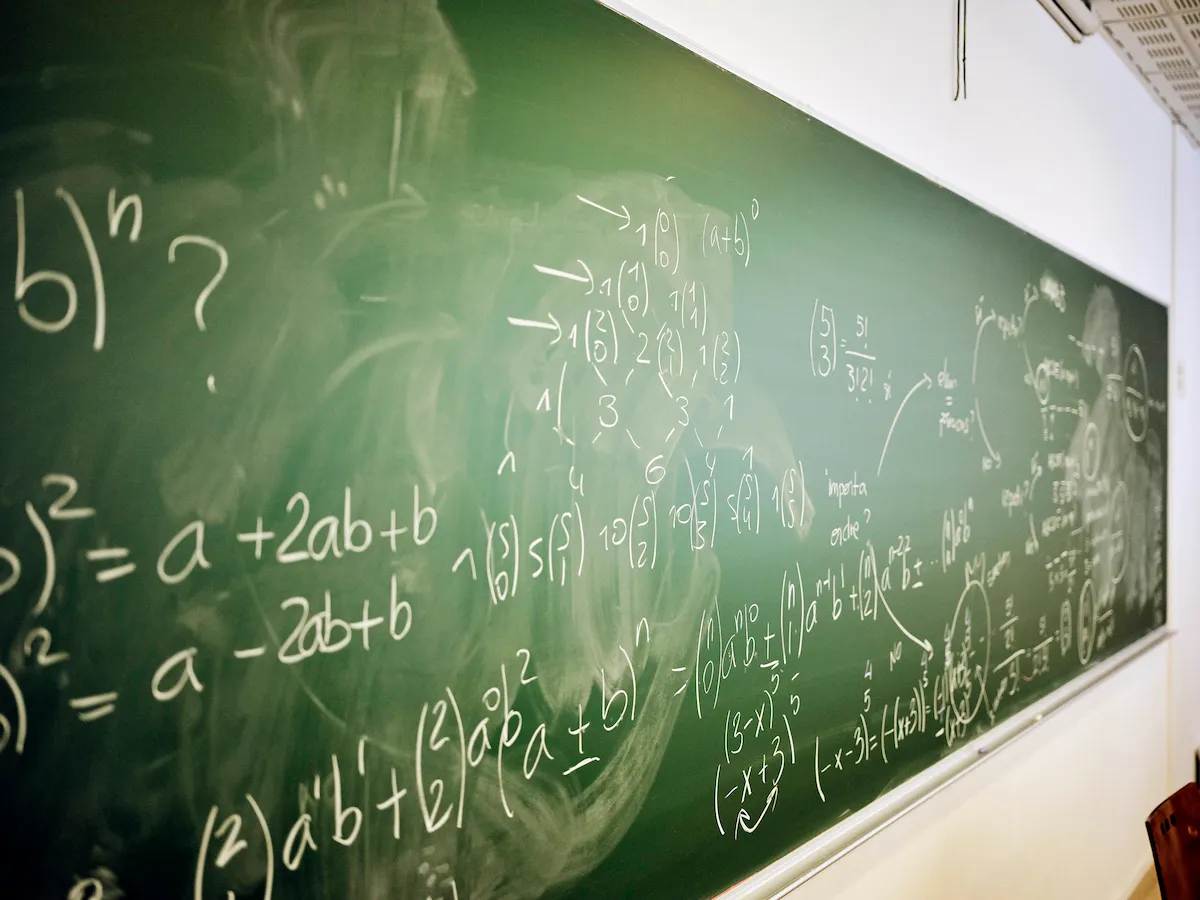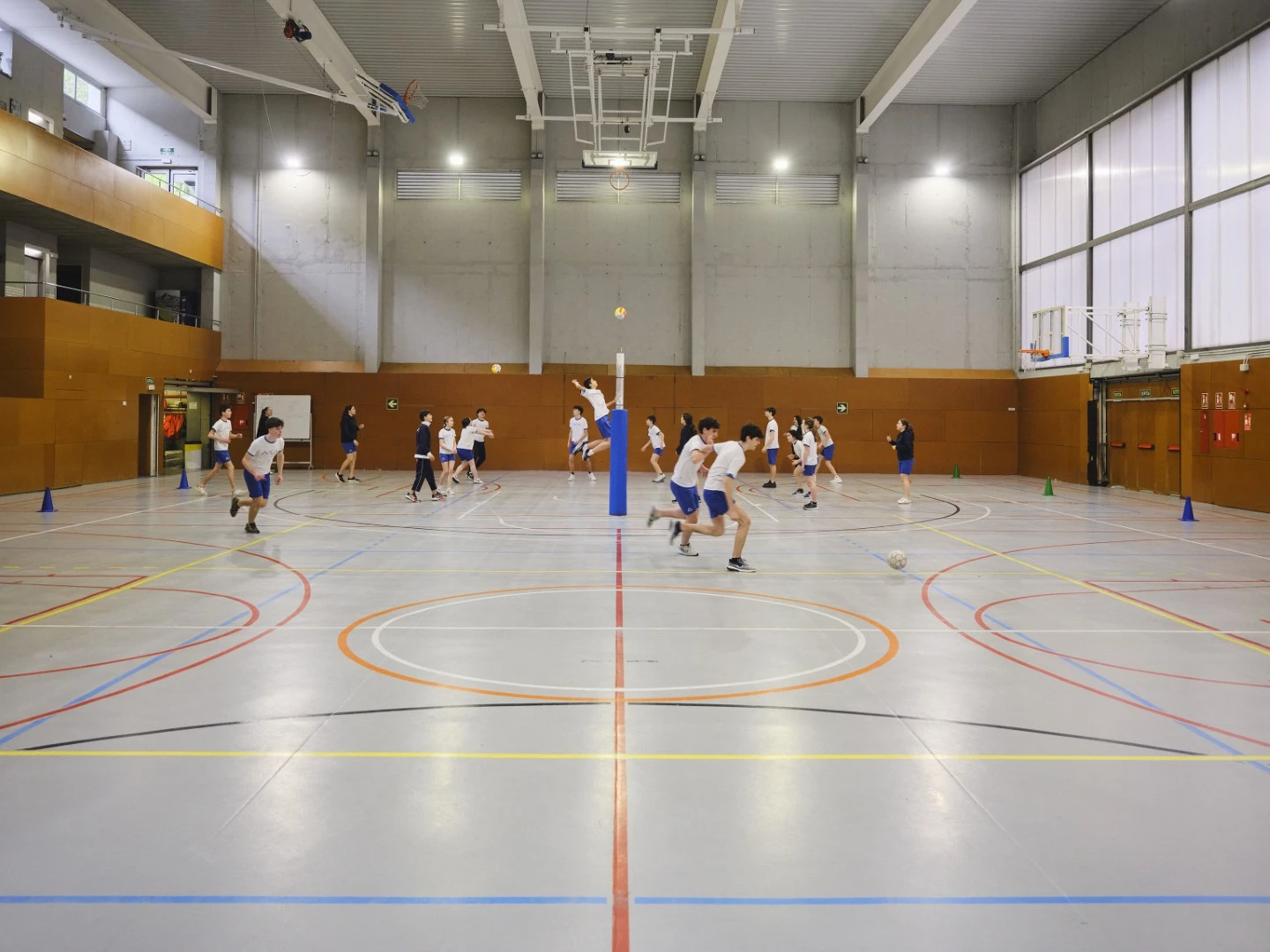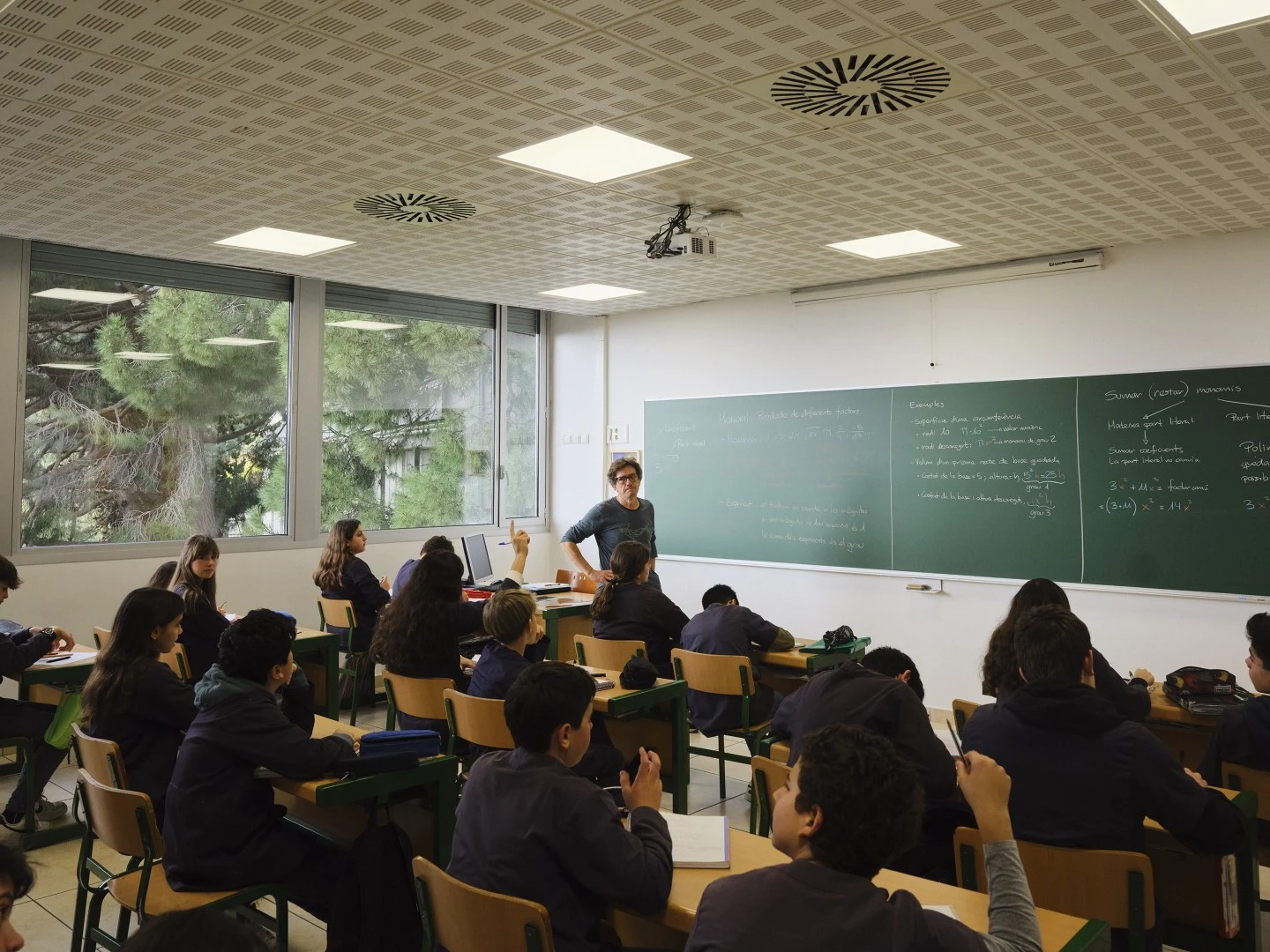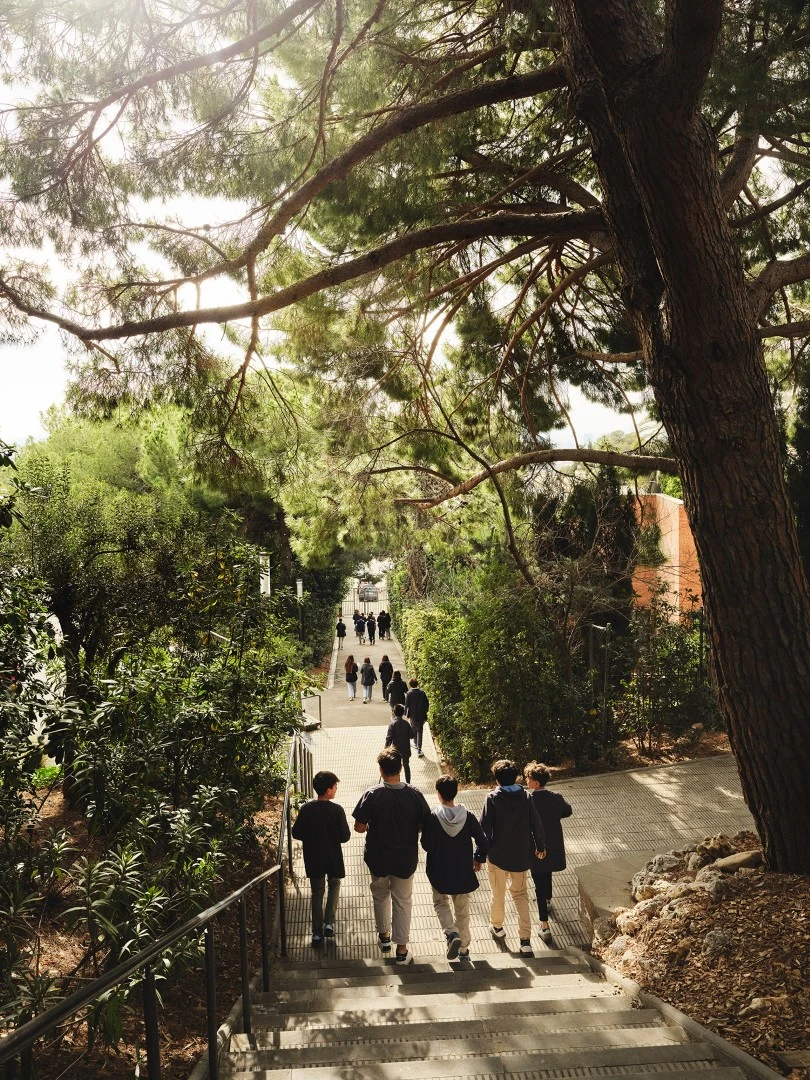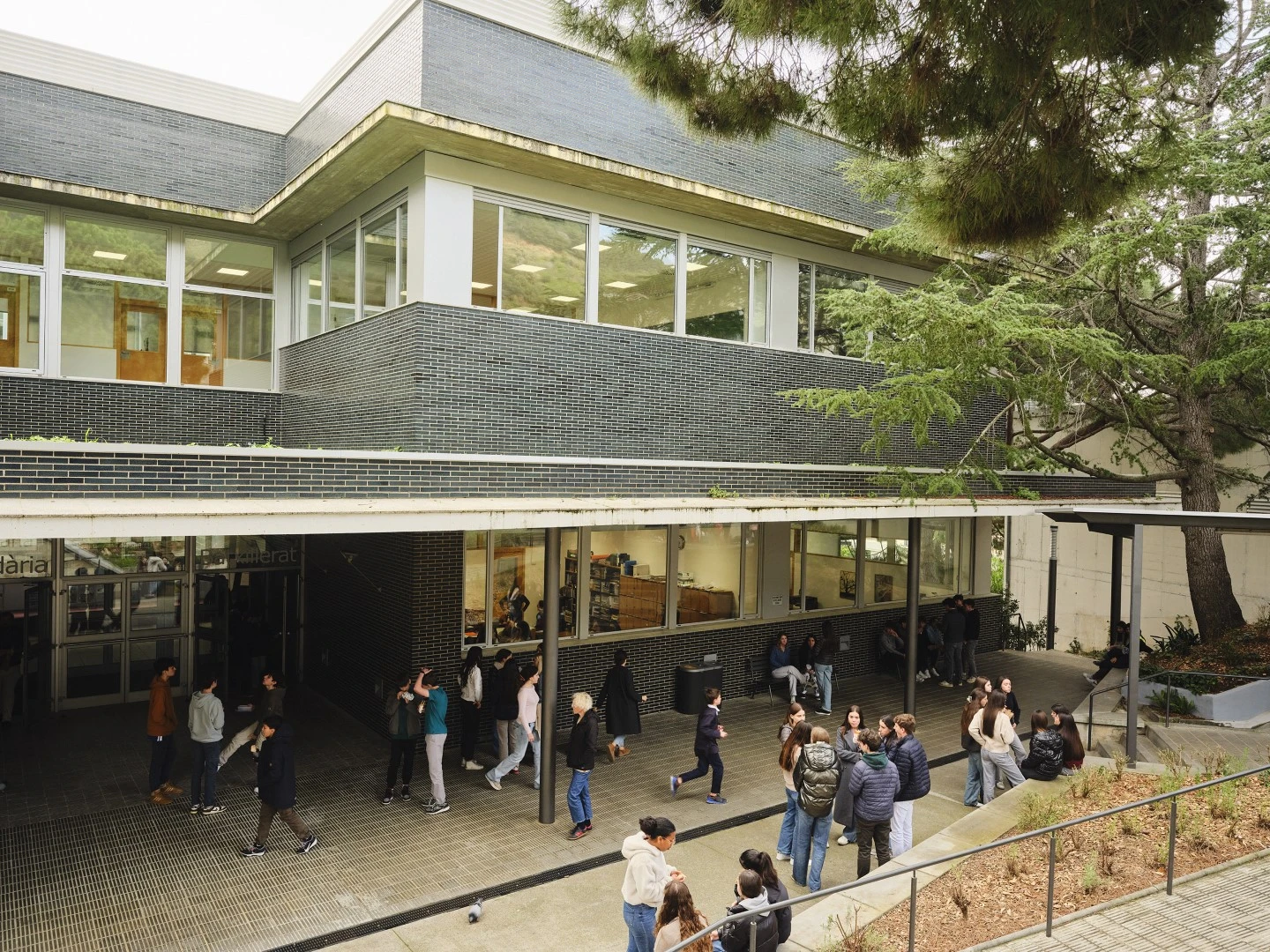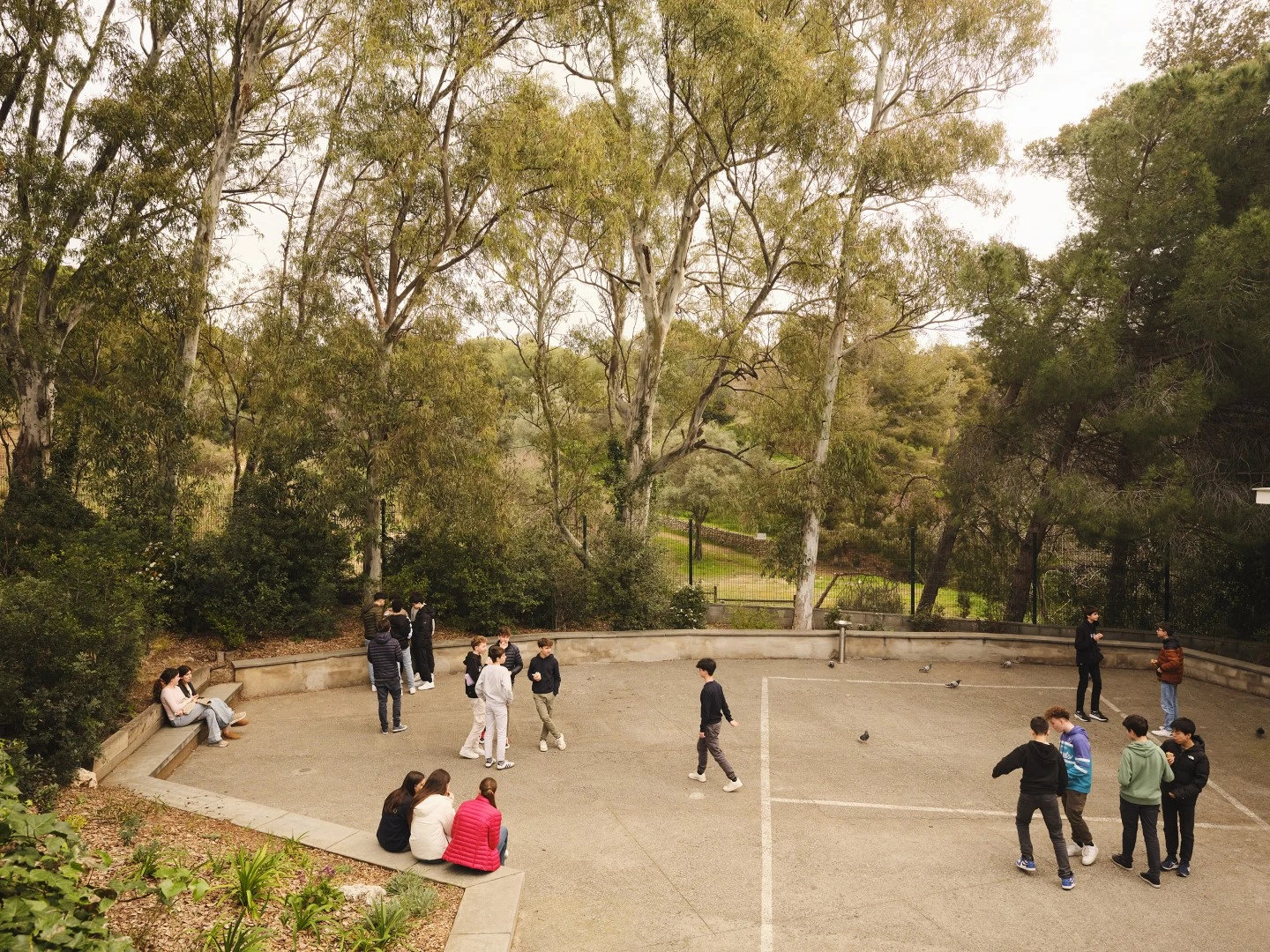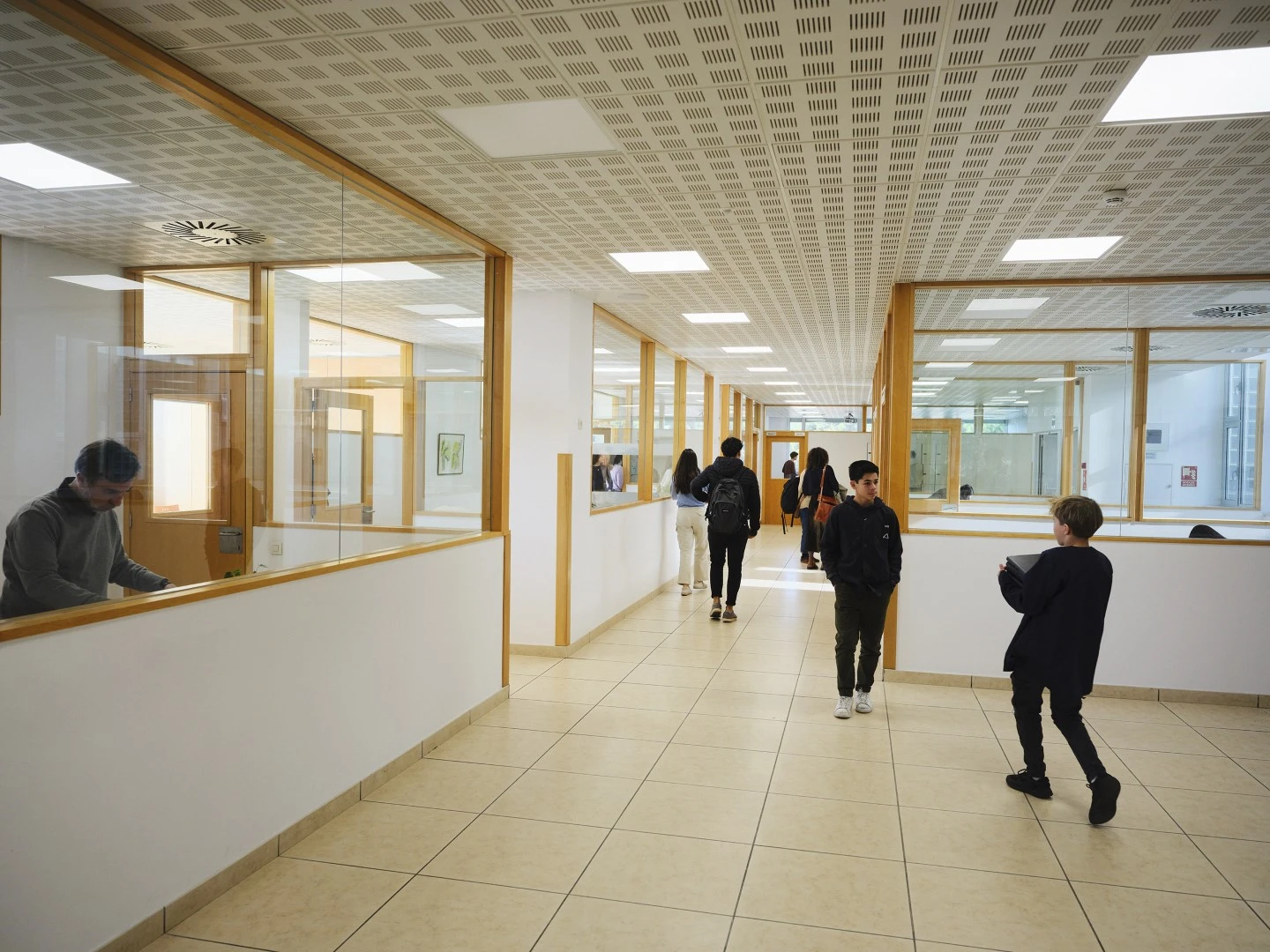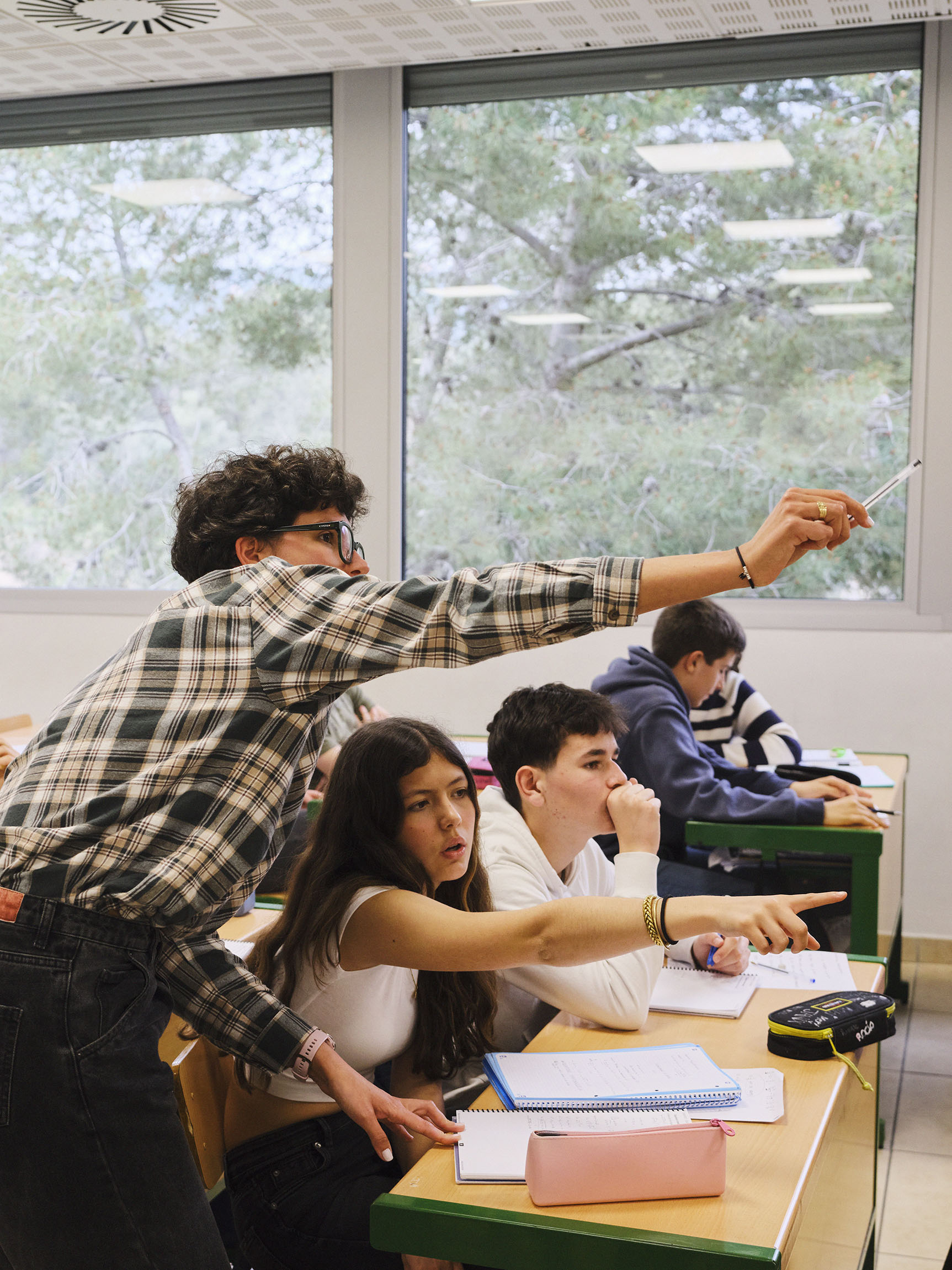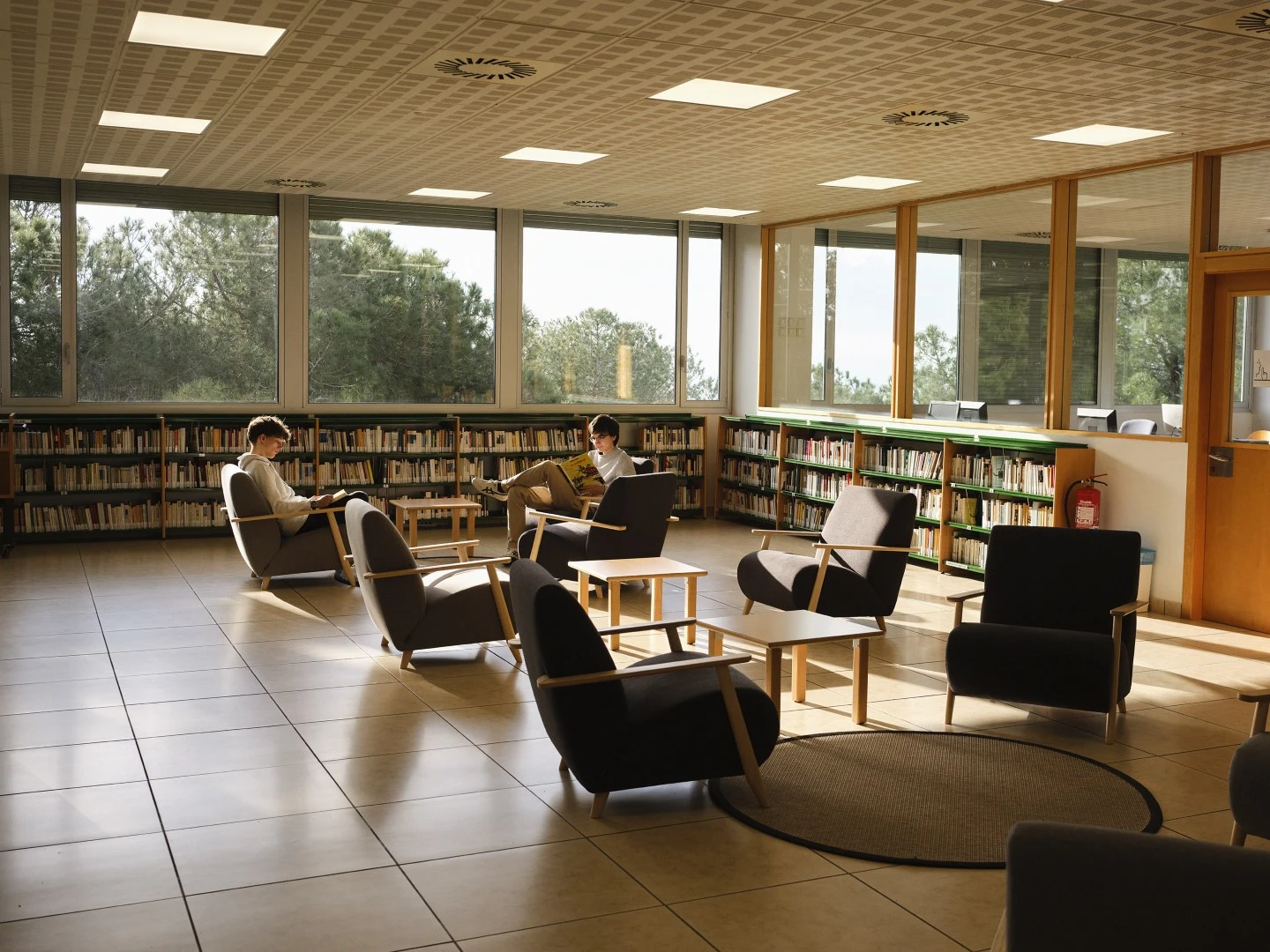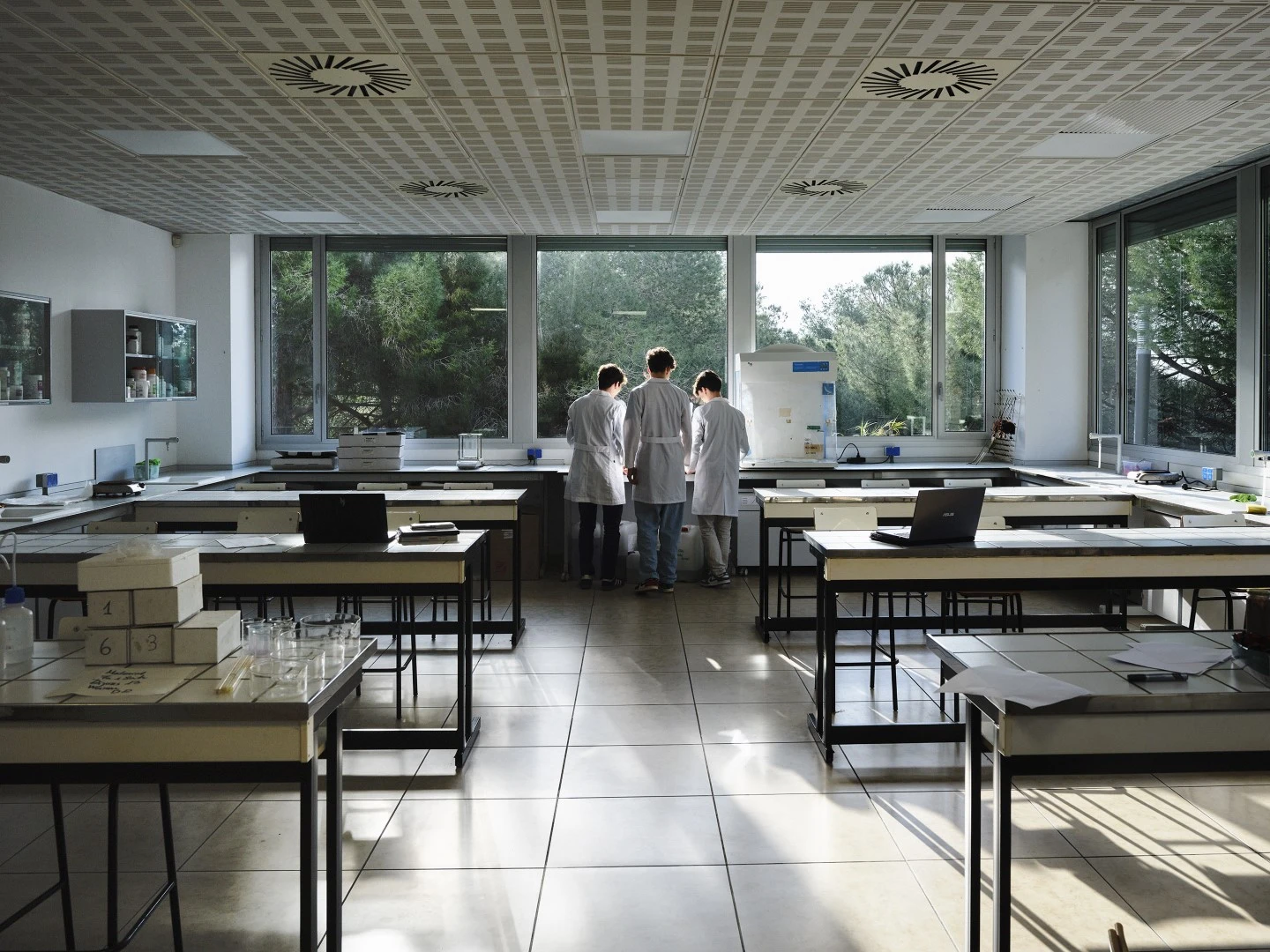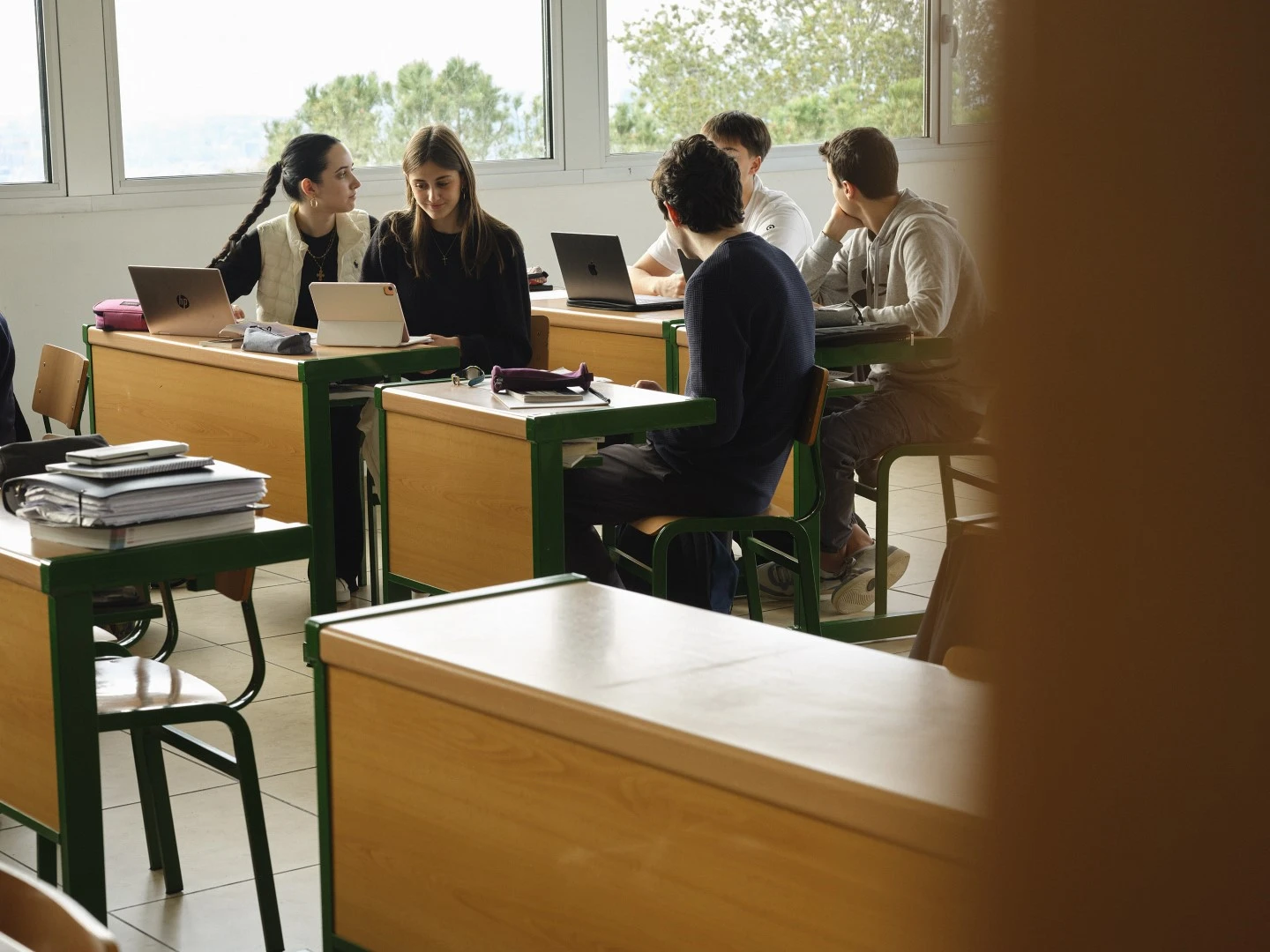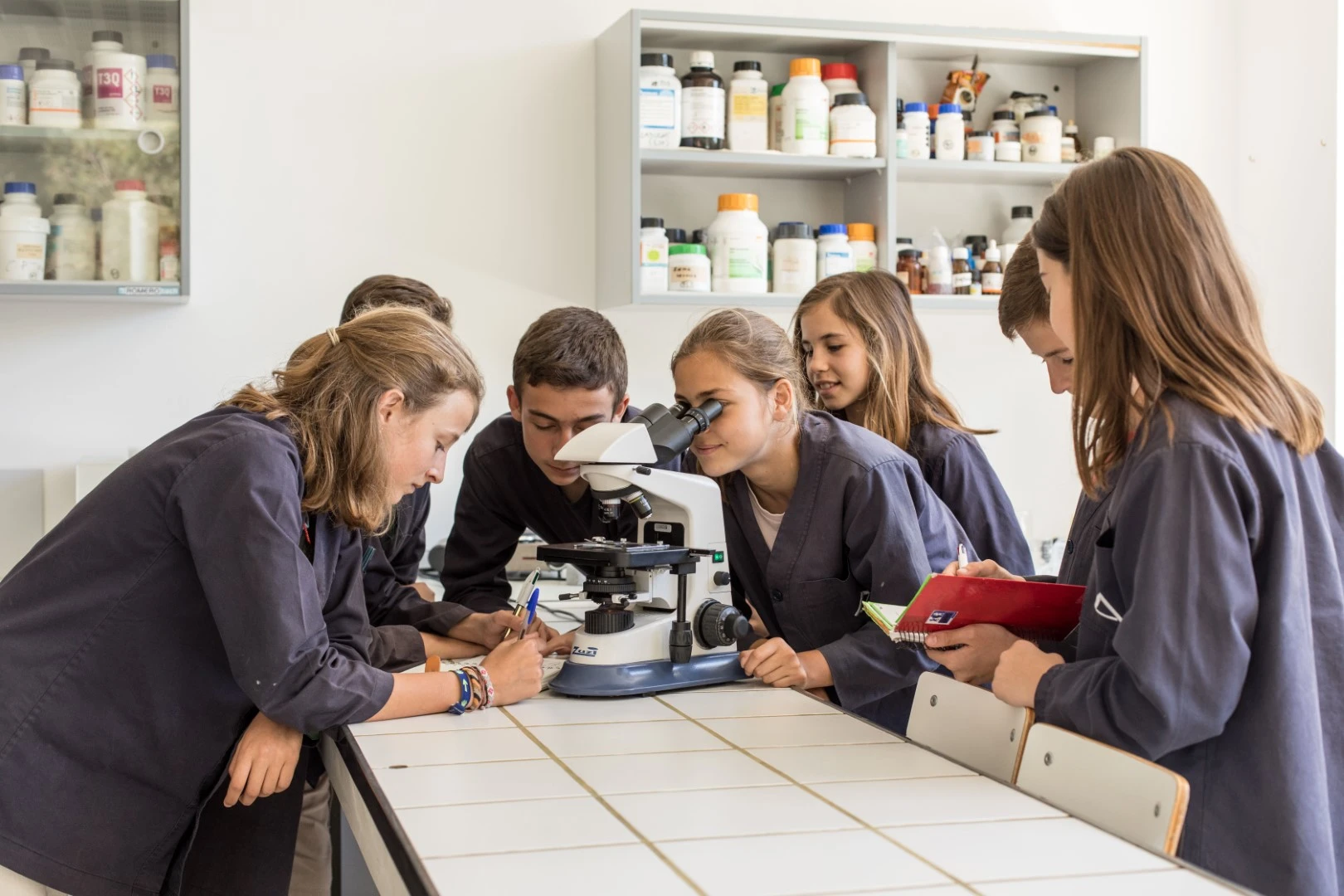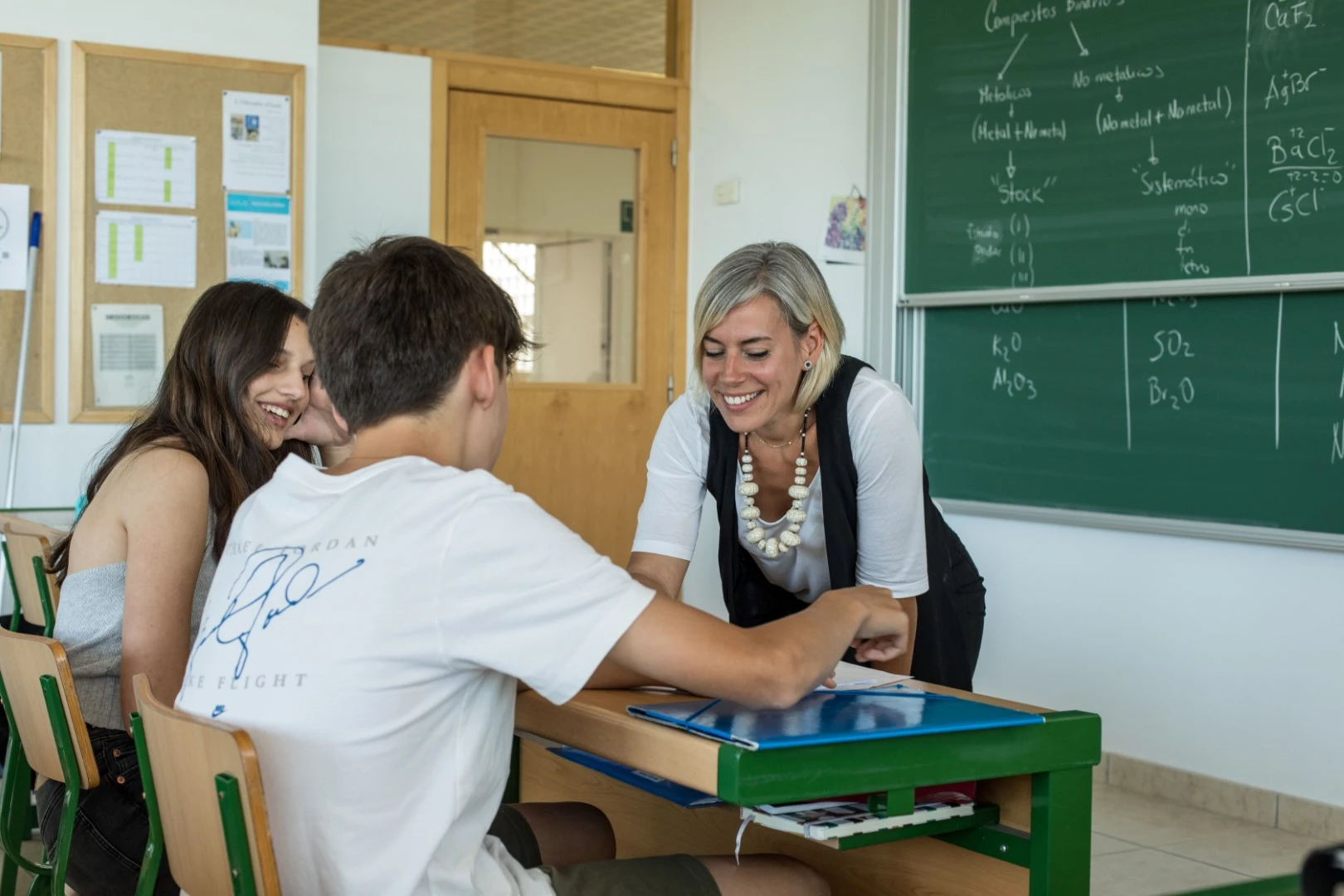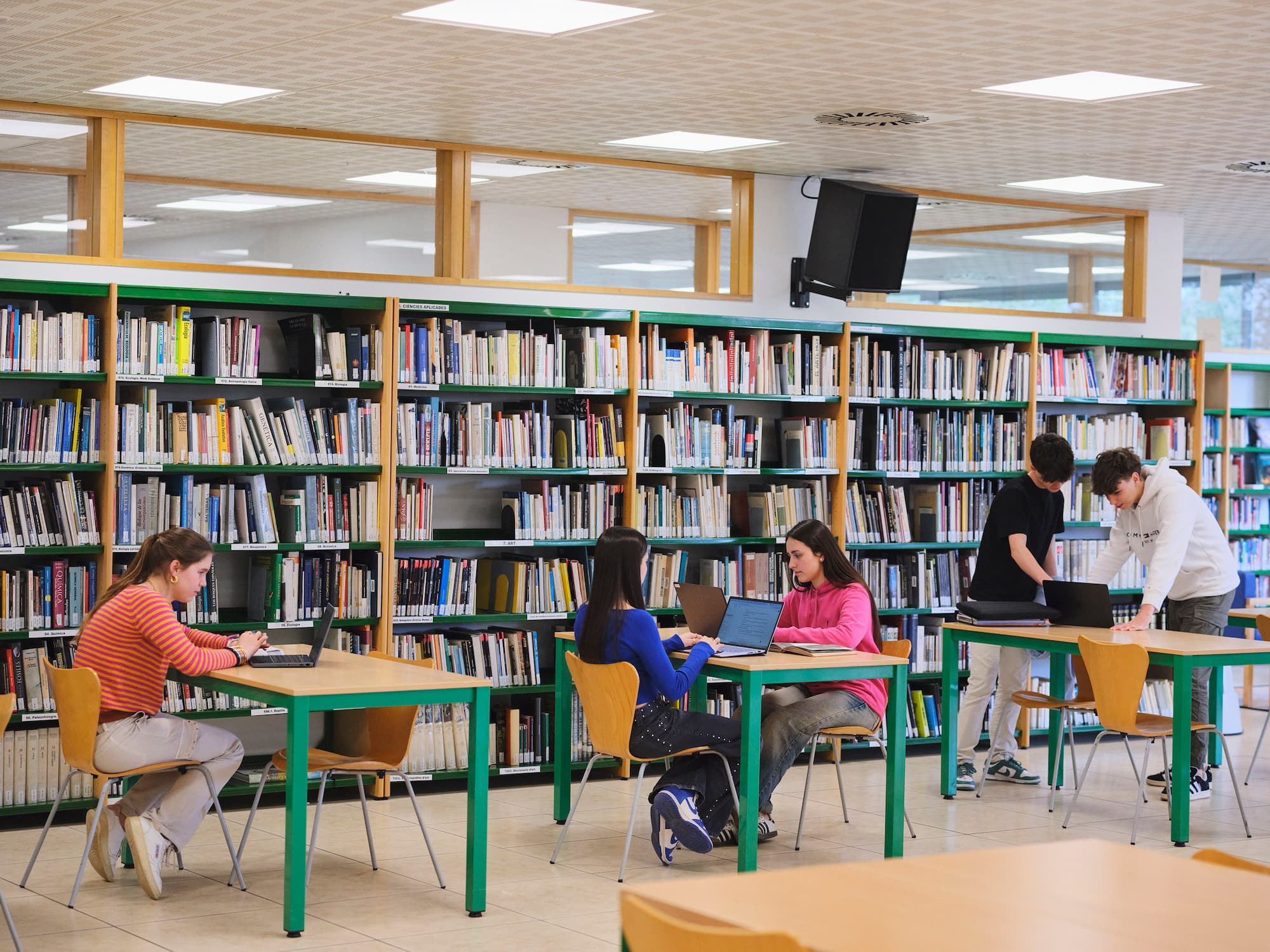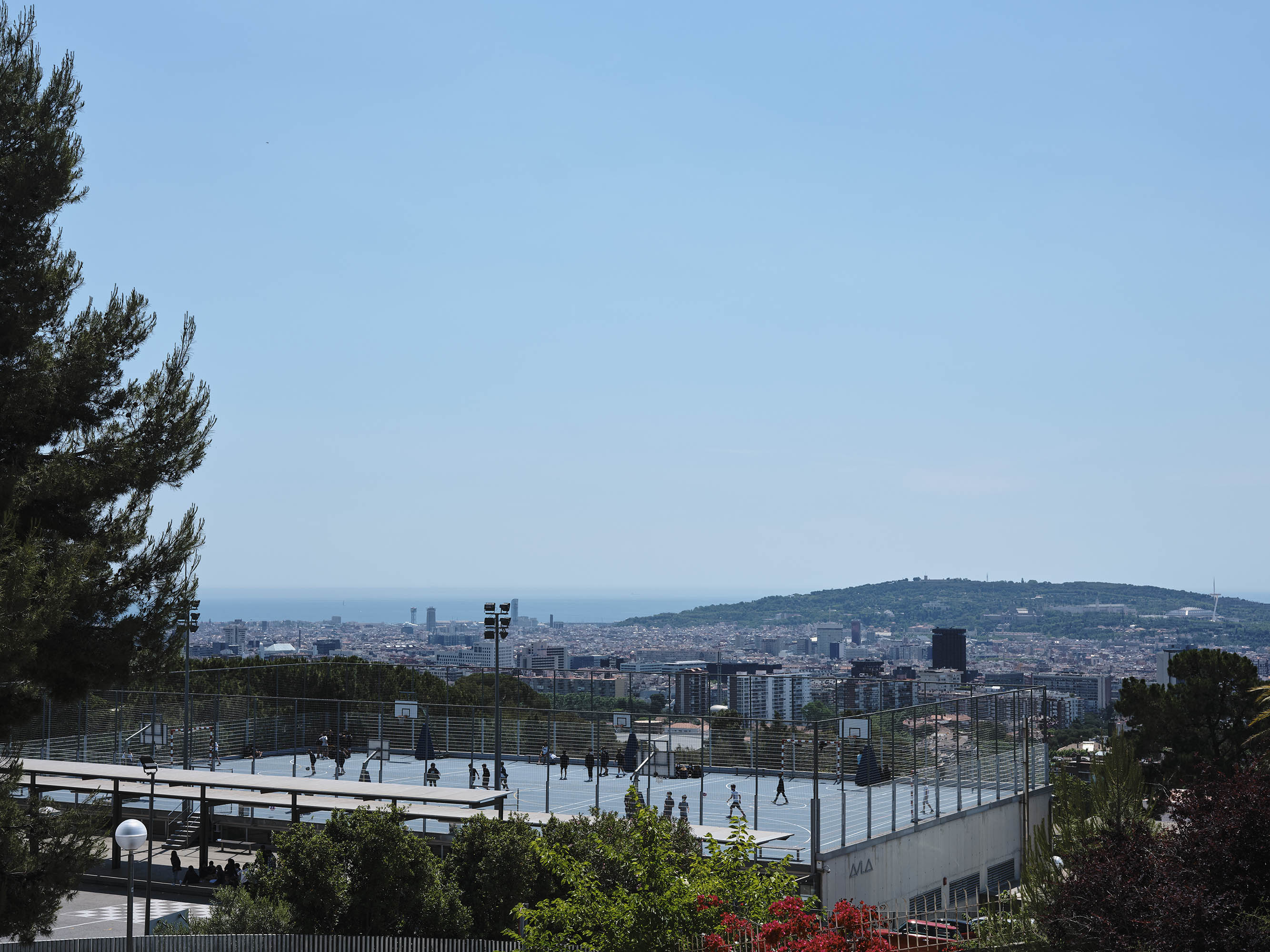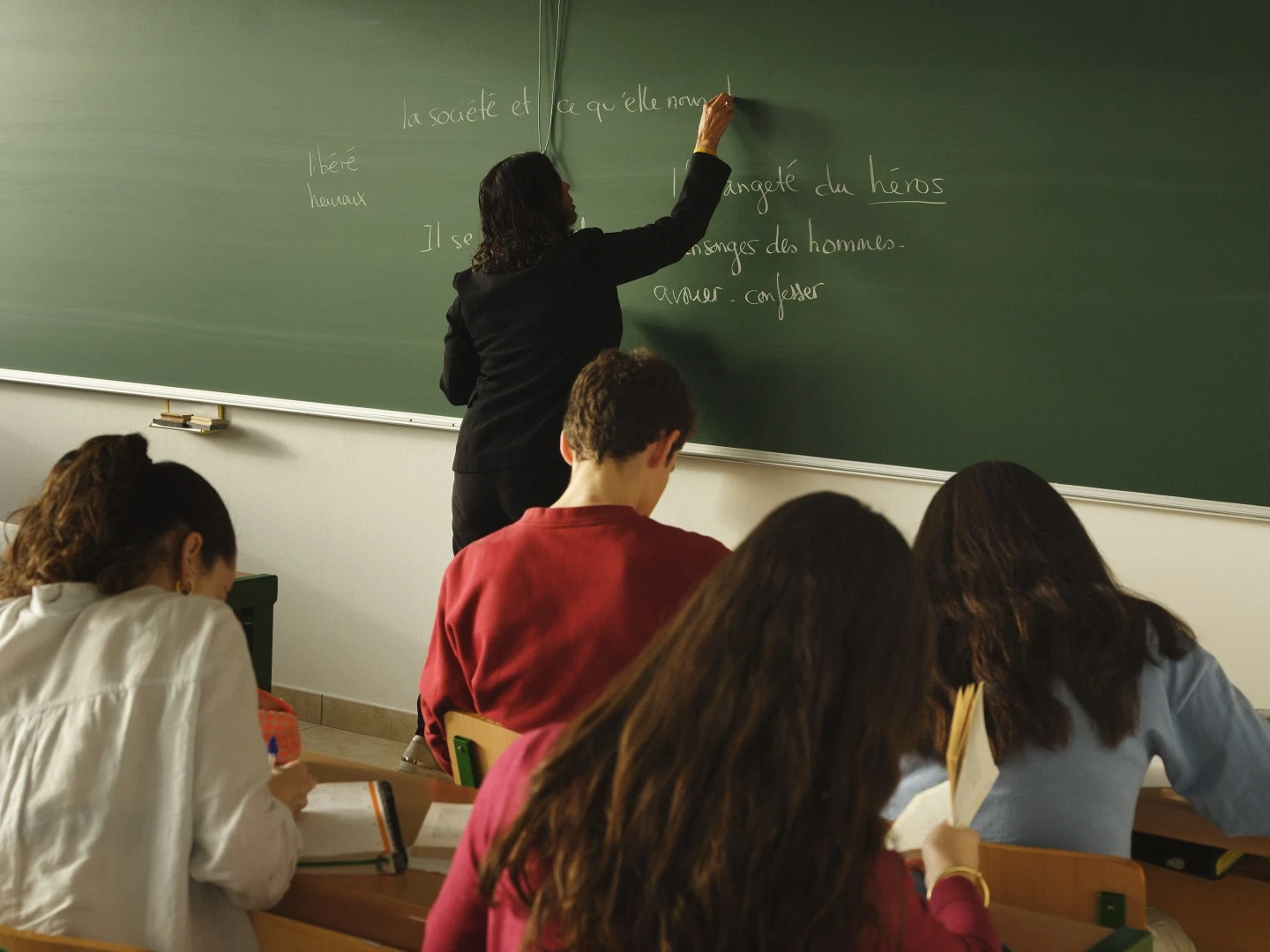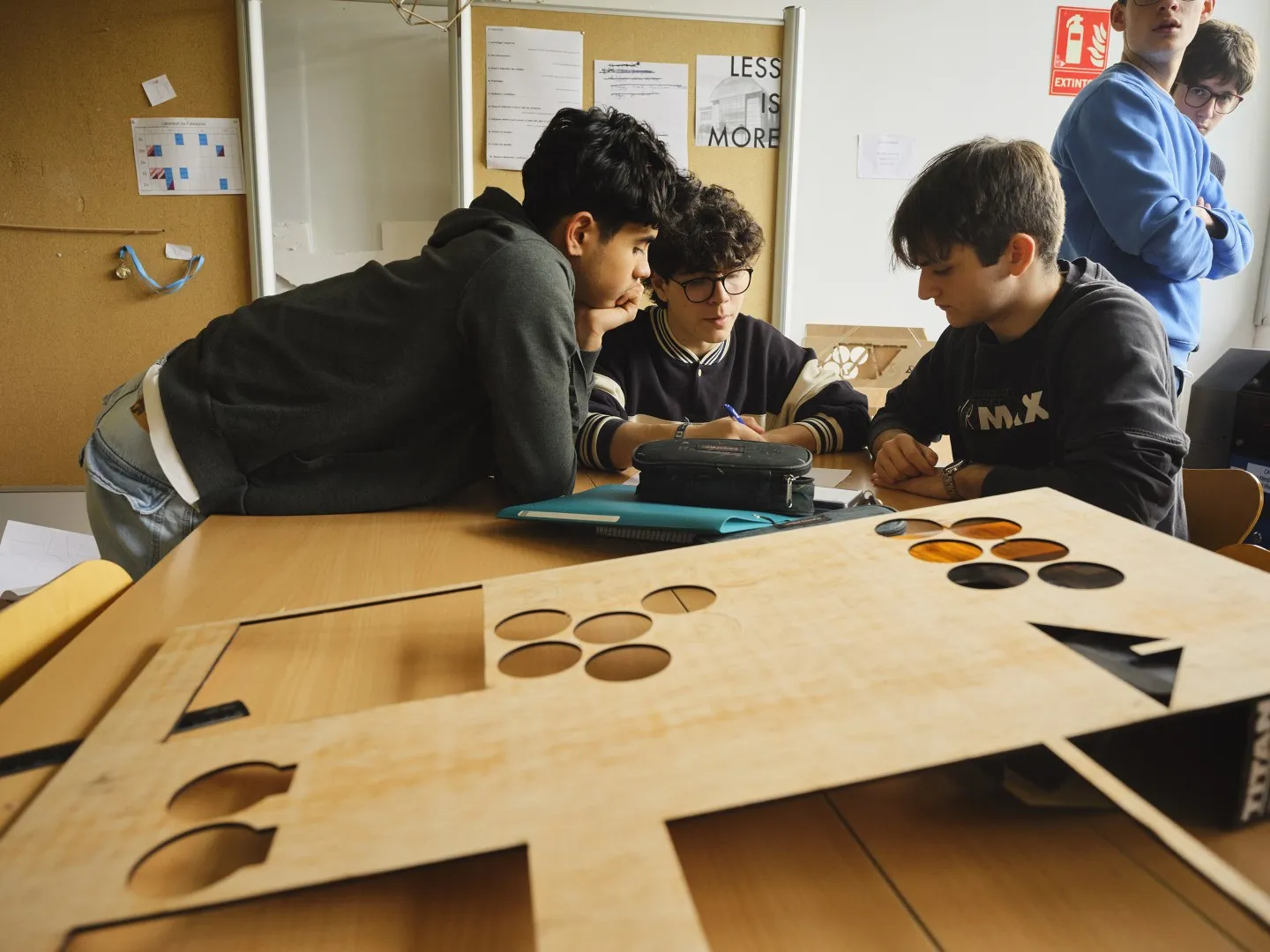Secondary School and Baccalaureate
The lessons taught in Secondary School and Baccalaureate are an extension of the spirit that guides the Primary stage, but with greater maturity on the part of the students, both in terms of skills and content.
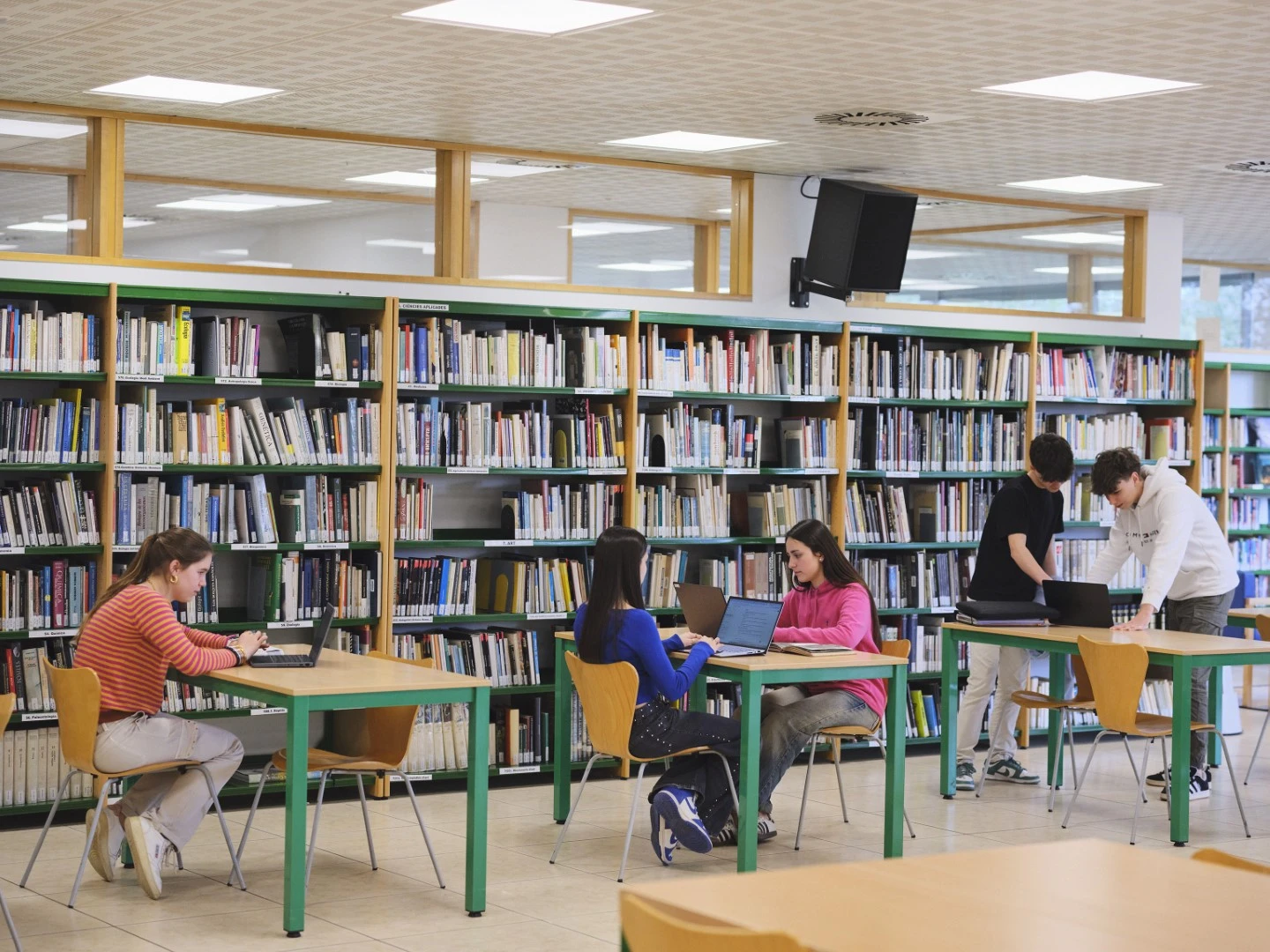
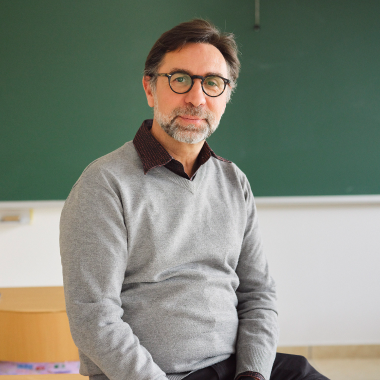
“The objective of this stage is for students not only to acquire knowledge but also to build their personality”
Curriculum
We refer to five academic axes that give a cross-cutting structure to the subjects at each of the levels, from Sixth year of Primary (which is already in the same building with Secondary School students) to Fourth year of Secondary School (4º ESO).
The same occurs in Baccalaureate, although in this latter stage, other factors such as elective subjects, increased complexity of subject requirements, and guidance for various university entrance exams must also be taken into account.
Computational thinking
Understood as a language that connects us with the world. That is why it starts in Kindergarten, when students begin to use languages without having studied them formally (for example, they sing, but they do not analyse the lyrics grammatically or learn musical notation).
At Aula, we have been pioneers in the implementation of computational thinking for 50 years; therefore, we are clear about the need to stay up to date with the latest developments. In this regard, now that computer science is already in all schools, our motto could be: Go slower to go further.
As a consequence, we start by going over the foundations that foster the learning of computational language, and for this, we work on the mental structure necessary to communicate through a computer. Of course, it is not about creating computer scientists or only learning programming. We use the phrase computer laboratory and not just computer room; and we approach the discipline in a cross-cutting manner.
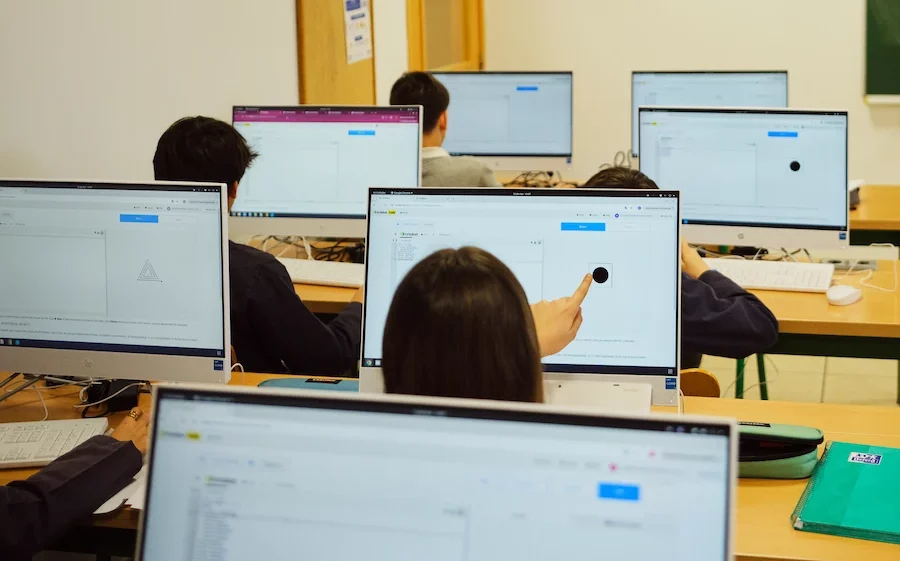
Mathematics
Mathematics is not just a tool; it is also characterized by its beauty. Again, we approach the subject from a broad perspective, conceived also as another language that connects us with the world.
Aula Escola Europea is known for its high standards in the study of mathematics, and for this, we rely on reasoning and argumentation when solving problems. Often, before delving into the formal aspects of the discipline, we work with physical materials that lead students to generate ideas and concepts related to the subject.
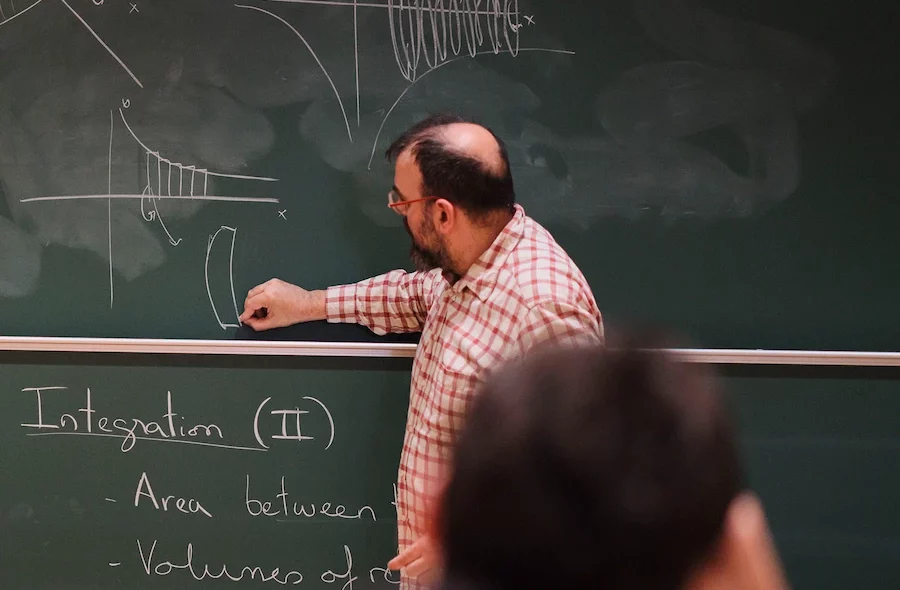
Literature (and humanistic education)
We understand literature as a way of understanding oneself and others, rather than as the history of literature. This is why names, dates, authors, etc., take a secondary role, and the main focus is on reading the texts. The list of works read and studied by students in Secondary school is extensive and rich in various languages (originals and translations): “Lazarillo de Tormes,” “Don Quixote,” “The Metamorphosis” by F. Kafka, “Macbeth” by W. Shakespeare, “Broken Mirror” by M. Rodoreda, “The Baron in the Trees” by I. Calvino, “White Nights” by F. Dostoevsky, “A Streetcar Named Desire” by T. Williams, “The Picture of Dorian Gray” by O. Wilde, “The Braid” by L. Colombani, “The Turn of the Screw” by H. James, “Furrows of the Azar” by P. Roca, etc.
We believe that engaging with and becoming acquainted with great works and authors is the only way to develop mature readers capable of understanding and expressing ideas rigorously and profoundly.
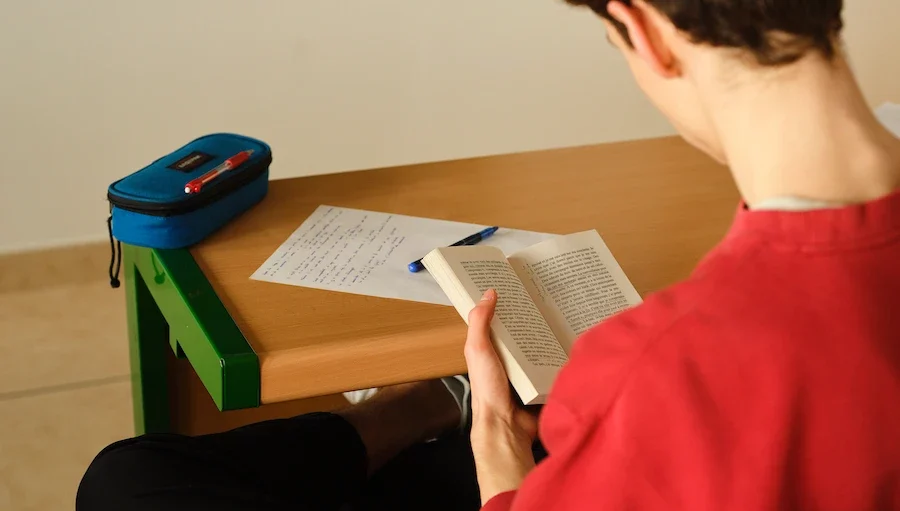
Multilingualism
We understand that every language entails knowledge of the culture from which it arises, in which it is used, and to which it contributes. For this reason, Catalan, Spanish, English, and French are not only subjects that all students must take until Fourth year in Secondary (4º ESO), but also languages in which other disciplines are taught. That is, they are both subjects in themselves and vehicular languages for other subjects.
For example, English is a subject that students take every year, but English is also the language in which Physics is taught in some Secondary School years. The same happens with the other three languages. The relationship of a vehicular language with a subject may vary from year to year.
The objective is for students to be able to express themselves orally and in writing in an appropriate way to the different possible contexts (verbal contexts that are marked by language, register, discipline, etc.).
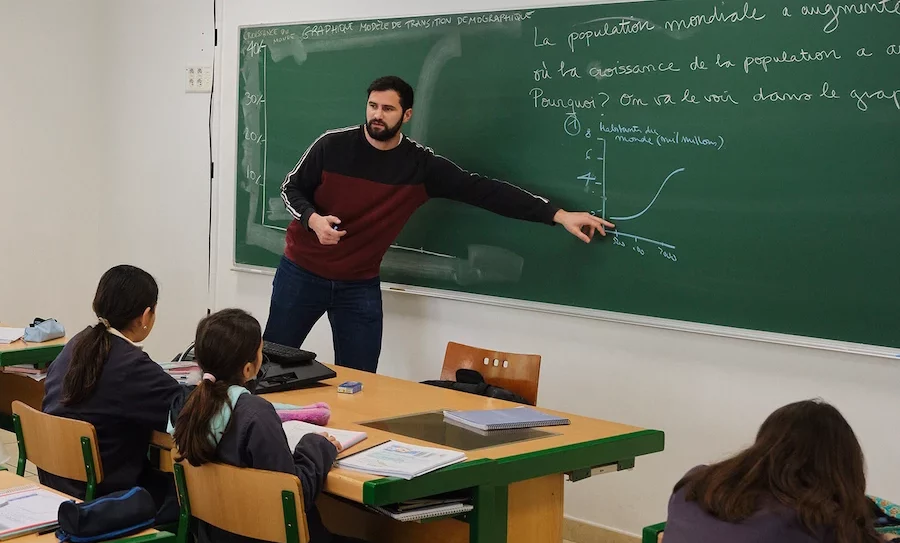
Psychoemotional and academic support
The student’s learning is inseparably linked to their growth as a person. Furthermore, their academic education should assist them in this growth process. For this reason, at Aula Escola Europea, we offer a student support programme to help them both in their academic education and in their personal growth.
The mechanisms we employ are as follows:
- Group and individual student tutoring
- The Support Project, divided into three stages:
- from Sixth year of Primary to Second year of Secondary (2º ESO)
- from Second year of Secondary (2º ESO)to Fourth year of Secondary (4º ESO)
- from First year of Baccalaureate to Second year of Baccalaureate
Each is overseen by someone responsible for that stage, although all teaching staff participate, as the Project is integrated into daily pedagogical activity. Teaching is, first and foremost, understanding who you have in front of you.
- The Department of Psychopedagogical Guidance (DOP).
- Counselling for studies and professions.
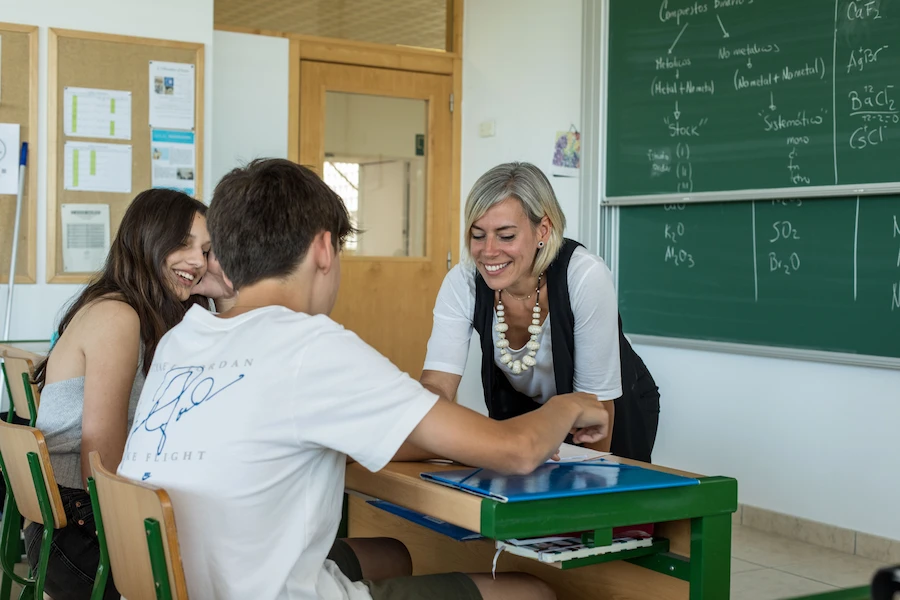
Progression of the curriculum
First cycle of Secondary Education (Sixth year of Primary, First and Second years in Secondary school – 1º and 2º ESO)
The Sixth year of Primary groups are already located in the Secondary School building with the aim that students advance further in terms of knowledge and skills.
The key aspects of this academic year are working on study techniques, organization of task folders, time management, etc.
The work carried out by students in this stage consists of:
- Learning and understanding general and specific knowledge; also in a cross-disciplinary manner
- Learning and consolidating work systems: methodologies, study techniques, and habits
- Developing emotional intelligence
Second cycle of Secundary Education (Third and Fourth year of Secondary School – 3º and 4º ESO)
This represents a leap in maturity that translates into greater complexity and increased effort.
Students work from a significant degree of self-awareness of what has been learned and assimilated in the first stage.
We also rely on them having a greater degree of self-regulation and academic and emotional management.
Baccalaureate
The Baccalaureate at Aula Escola Europea offers three programmes:
- Spanish Baccalaureate
- Spanish Baccalaureate and International Baccalaureate
- Batxibac (that is, Spanish Baccalaureate and French Baccalauréat)
And three itineraries:
- Scientific-technical
- Social
- Humanistic
Own curricula
The school has designed its own curricula for the different subjects that combine and integrate those from all the itineraries and programmes we offer. It is important to understand that there is no class specifically for the International Baccalaureate or the Batxibac, but rather classes for Catalan, English, Chemistry, etc.
We refer to it as Aula Baccalaureate (International Baccalaureate, Batxibac, Spanish Baccalaureate: these are the options within baccalaureate, and they refer to external exams that grant access to university). Aula offers its Baccalaureate programme, not these three Baccalaureate options separately.
The curricula of Aula Baccalaureate are extremely rich, versatile, and methodologically diverse, allowing our students to tackle different challenges, exams, interviews, entrance tests, etc., with the best preparation possible. The academic preparation we offer is of a high level in terms of content, methodologies, and guidance.
It is a demanding Baccalaureate in terms of dedication and number of hours. That is why we provide a comprehensive tutoring and support programme throughout the stage: tutorial sessions, management support, university guidance, international enrolment processes, etc.
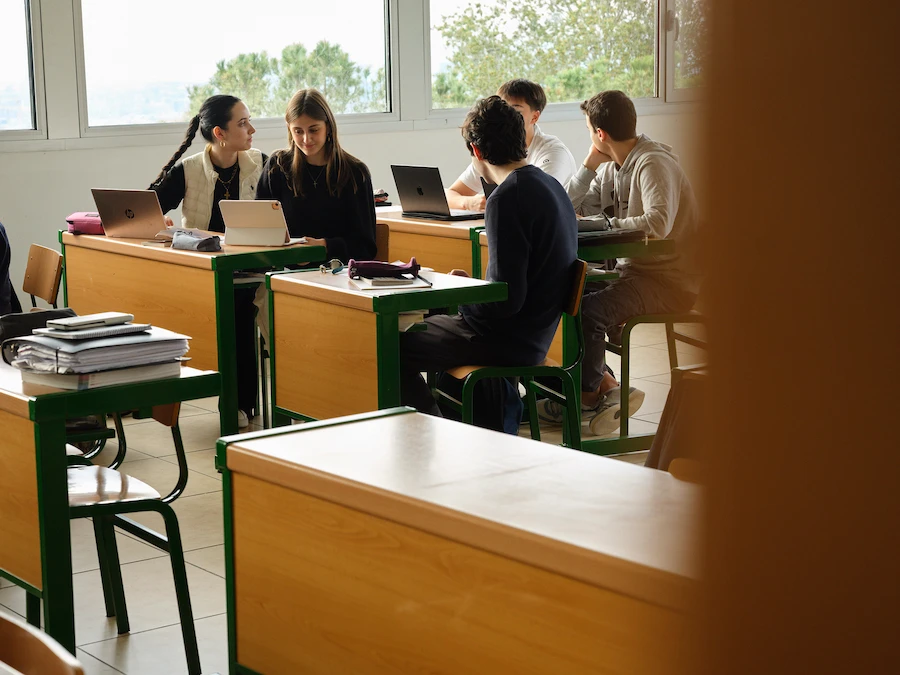
Methodology
Metodología propia
At Aula Escola Europea, we do not adhere to any specific pedagogical formula (such as project-based learning, etc.). We adopt what we think most appropriate at the time when it is most adequate. The methodology is largely dictated by the subject itself: the content is inseparable from the way it is presented and assimilated. In fact, within the same subject, very different methods and strategies can be used depending on factors as varied as the topic being addressed, the specific dynamics of a group of students, and the skills being addressed.
The guiding principle is the belief that all teaching is about learning: the competency and content constraints of subjects cannot be separated from the cognitive, psychological, and emotional needs of students. The student is, therefore, the centre of their own learning. A solid academic education is inseparable from personal growth.
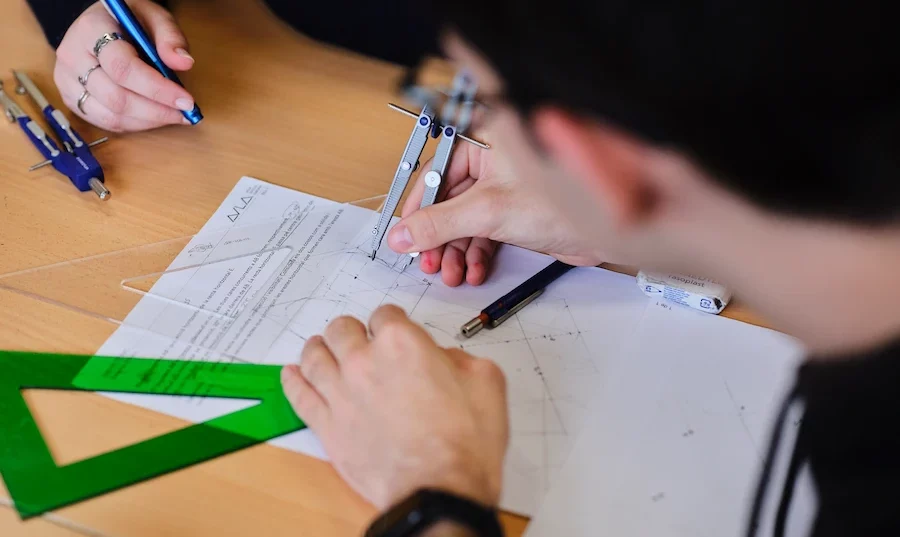
Aula Recerca
A prime example of Aula’s approach is the Aula Recerca project, focused on continuous research and experimentation in the pedagogical field, both theoretically and, above all, practically.
Every school year, Aula teachers can submit pedagogical research projects aimed at bringing their conclusions to the teaching practice of the school. The approved projects involve hours of dedication (theoretical research, reflection, and implementation) that translate into concrete initiatives that impact the daily practice of the school.
Some projects that have been carried out have to do with creativity in the classroom, diversification in the teaching of mathematics or the presence of artificial intelligence in learning. You will find more information about all the projects that have been carried out here.
Teaching staff
In Secondary School, each group of students has a tutor, who is the reference person for both academic and other issues. The tutor is also the first point of contact for families with the school regarding their children’s learning process. The tutor is also a specialist in a particular discipline, so they are with the students during the assigned tutorial hours and also during the hours designated for teaching the specific subject.
All teachers of the different subjects are specialists in their field of learning, knowledgeable and passionate about the discipline they teach.
The Department of Psychopedagogical Guidance (DOP) is a fundamental part of the teaching staff. In very close collaboration with tutors and teachers, as well as with families and, of course, students, the DOP is a fundamental aid in attending to the well-being of students.
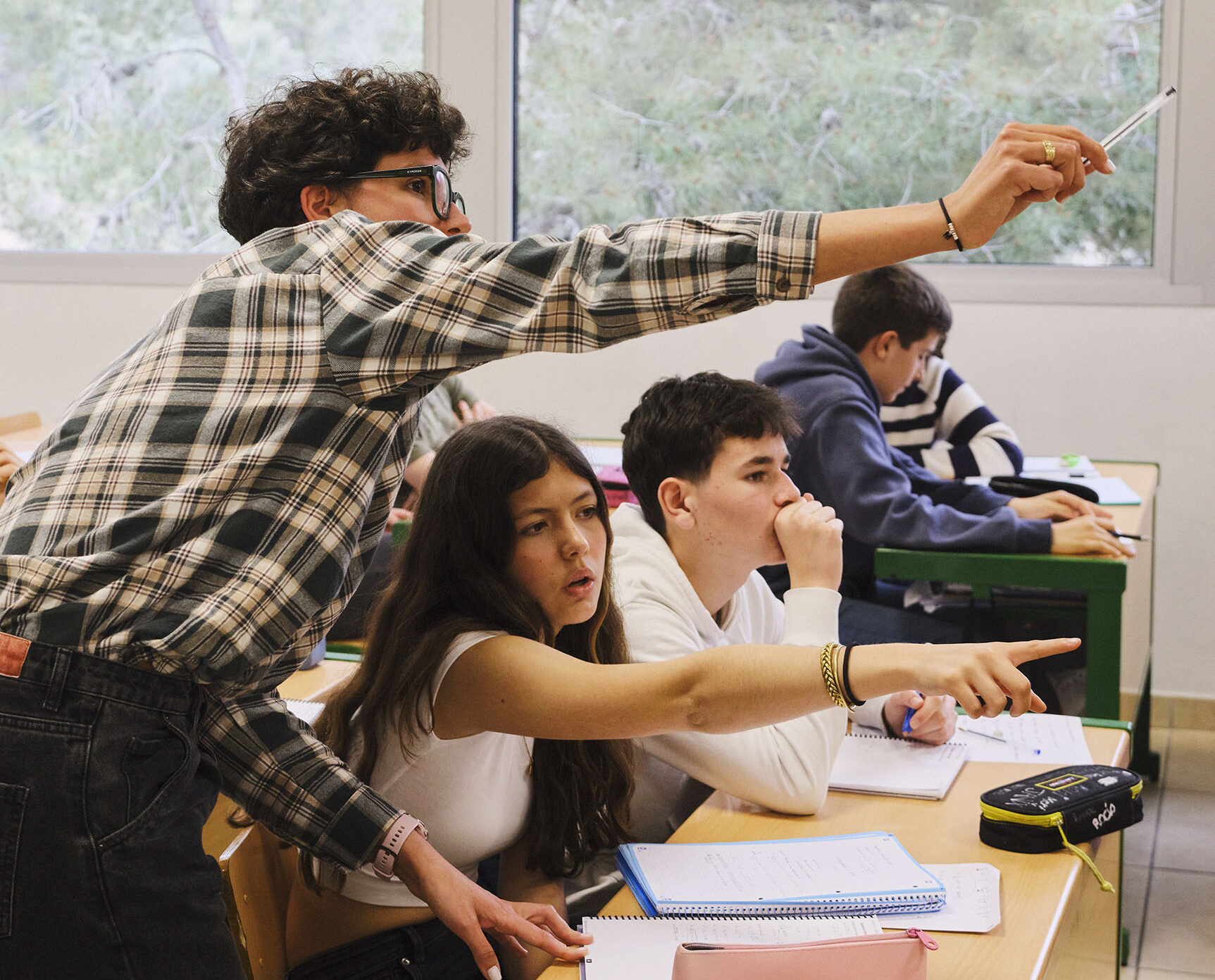
Textbooks, reading materials and supplies
In Secondary School, students work with a variety of materials that meet the pedagogical (methodological and content) needs specific to each subject. Sometimes textbooks are used, while at other times teachers create customized materials in the form of dossiers. Additionally, digital materials are also used. The choice depends on which is the best available tool for each course. However, except for subjects like Computer Science, digital materials are available for work at home, not in the classroom. Students do not have their own computers, tablets, or mobile phones in the classroom. When needed, the school provides its digital devices, which are distributed to students during sessions accordingly.
Given the importance we place on reading, students must acquire a significant number of books to read in the four languages of the school throughout their Secondary School /Baccalaureate education. These works are studied through the different subjects that students take.
In the Secondary School/Baccalaureate building, we have a media library/library with a very wide selection of titles (both reference literature and literature in a more specific sense), magazines, CDs, and DVDs. Students can borrow all of these materials. The librarian assists students with bibliographic inquiries when they need to work on assignments; moreover, they can also advise them if they are looking for personal reading materials.
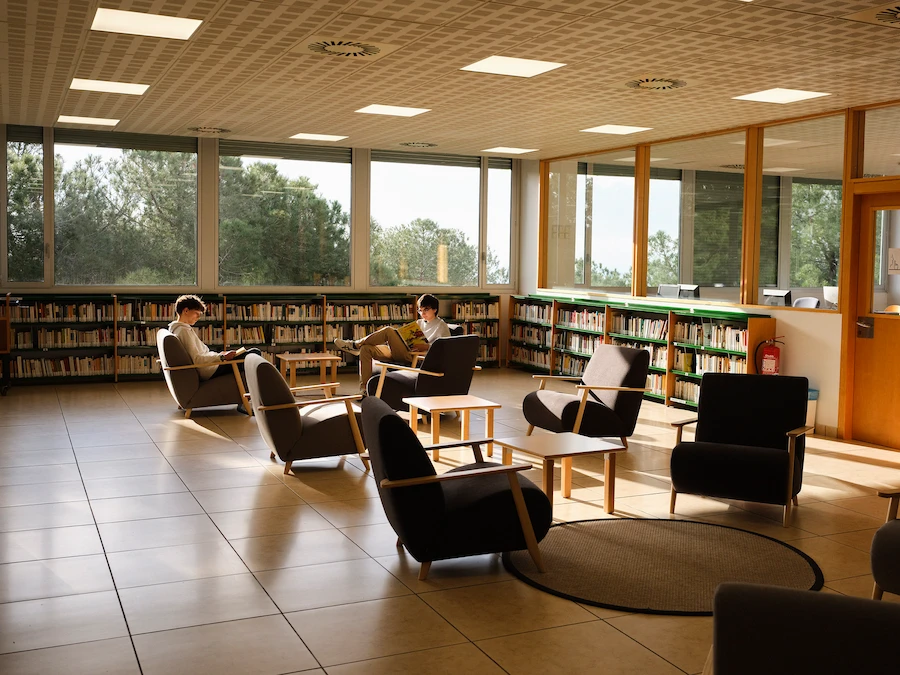
Written and oral expression
Exercising one’s own criteria and being autonomous implies, first and foremost, having a diverse knowledge base. But it also inevitably involves being able to express oneself orally and in writing appropriately in different contexts (verbal contexts determined by language, register, discipline, etc.). For this reason, in Secondary school, tasks that students must perform, whether oral or written, are also evaluated from the perspective of expression, not just in terms of the content of the discipline.
Moreover, in various subjects (and sometimes also in a cross-disciplinary manner), students engage in activities that involve practicing oral expression. An example of this are the individual oral presentations that every student performs in language subjects. Another activity, of a cross-disciplinary nature, involving students from Fourth year of Secondary (4º ESO) and those from Baccalaureate, is the UMED Model: students form groups representing different countries and their interests regarding a predetermined topic. In parliamentary-style sessions, they interact with each other in the chosen language (English or French), putting forward or defending ideas and proposals, rebutting or questioning them, always from the perspective of the country they represent.
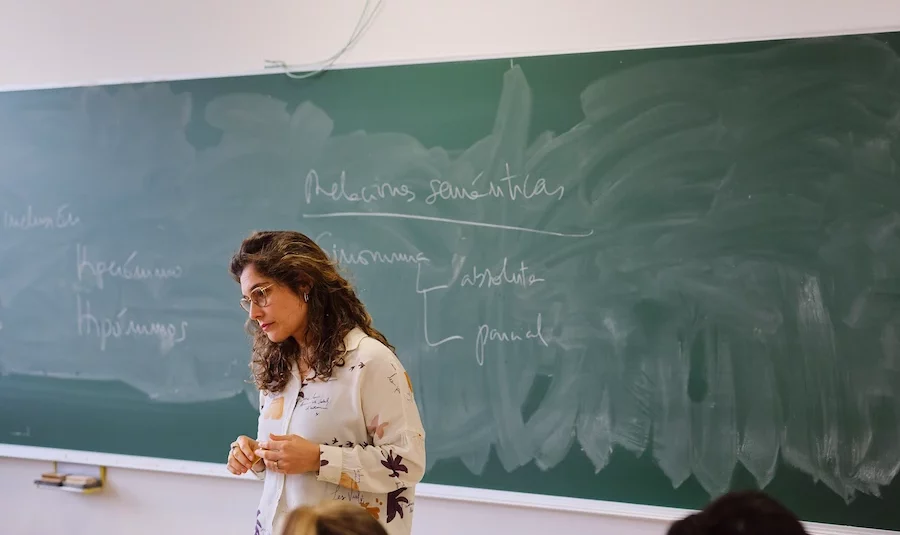
Foreign languages
Each of the four languages of the school (Catalan, Spanish, French, and English) is a subject that students take at all levels of Secondary education (from the Sixth year of Primary to the Fourth year of Secondary- 4ºESO). Additionally, at each level, these are used as vehicular languages in other subjects such as Mathematics, Social Sciences, Art, etc. The aim is to ensure that students, throughout Secondary Education, use the four languages in different knowledge domains.
Learning spaces
Each group has its own classroom, where most subjects are taught. All of them are equipped with a desktop computer with a projector.
In addition to classrooms, the building has other academic or learning spaces: the computer lab, the workshop (design workshop equipped with various types of machines for manipulating materials), the art room, and the physics, chemistry, and biology labs. We also have two amphitheatres where, quite frequently, students attend conferences given by guest speakers invited to the school.
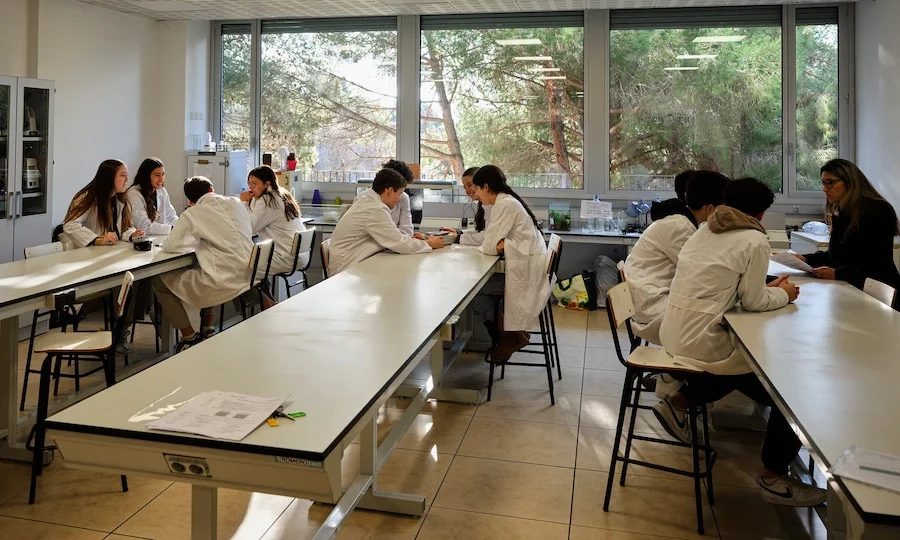
Outings
While we view the classroom as a space where the world they inhabit should be brought in, we consider outings to be an essential pedagogical practice. Throughout their Secondary education, students partake in various outings, including visits to theatres, museums, exhibitions, events in the city, or excursions linked to natural environments. These outings are designed to expand the pedagogical space and are never merely for entertainment purposes.
The same applies to the annual residential trips organized for each grade, from the Sixth year of Primary to the Fourth year of Secondary (4º ESO). The selected locations and activities are intended to be relevant to the academic progress of the students. These trips are also designed to have an impact on the emotional dimension of personal growth and knowledge, as well as the sense of unity among class or year groups.
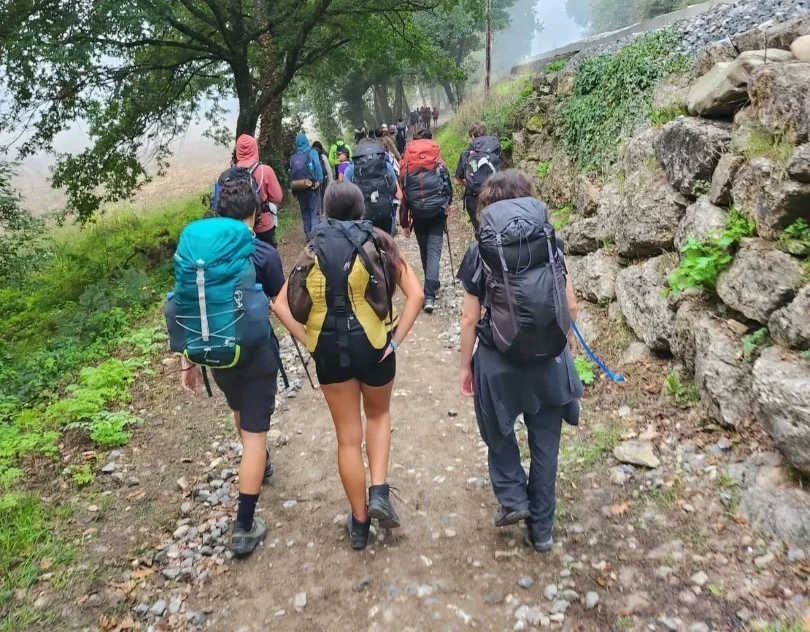
Special projects
Outings, school trips and study trips
A school should not only be a window that enables and facilitates our students to observe the world and reflect upon it; it should also be a door that connects them with the world, allowing them to journey towards it, and inviting the world into the classroom. For this reason, at Aula Escola Europea, we organize regular outings and trips of various kinds, which we link both to the academic aspects of the subjects and to the personal growth needs of our students.
Frequent visits to scientific institutions and cultural centres are carried out to reinforce and/or expand knowledge, as well as to introduce other areas or topics related to learning.
Each school year, the various groups of each grade go on a school trip, where specific values are addressed, academic topics are covered, and the importance of living together with each other and with the tutor or teacher is emphasized.
Older students go on special and slightly longer trips. In the Fourth year of Secondary (4º ESO), they tackle a stretch of the Camino de Santiago; in the First year of Baccalaureate, they undertake a route through some area of Spain (such as Andalusia or Castilla-La Mancha); and in the Second year of Baccalaureate, they visit a European city (Lisbon, Berlin, Florence…).
Batxibac students participate in an exchange with French students, as well as several cultural outings in France.
Other types of outings include trips to the theatre, the opera, specific exhibitions or museums… which depend on the cultural events happening in the city and beyond.
Conferences
Throughout the academic year, students are invited to attend conferences given at the school by specialists and notable figures in various fields of knowledge. This activity involves some kind of work by the students, even if the topic discussed is unrelated to the content of their subjects.
UMed Model (Union for the Mediterranean Model)
This project, launched in 2013, involves students from the Fourth year in Secondary (4º ESO) and the First year of Baccalaureate who participate in debates representing the Heads of State of one of the countries of the Union for the Mediterranean, in a simulation of a summit held at the school.
The UMed Model is inspired by the assemblies of the Union for the Mediterranean, an initiative of the European Union to establish new links and deepen existing ones with its Mediterranean neighbours in the Middle East and North Africa.
The Aula Escola Europea UMed Model project stems from our desire to involve our students in the values of the Barcelona Declaration, adopted at the Euro-Mediterranean Conference of 1995.
In their debates, students express themselves in English or French.
Naming of a year group
In Sixth year of Primary, each year group is baptized with a name that will accompany the students until the end of their schooling at Aula Escola Europea. The name they receive is linked to a relevant theme from a humanistic, scientific, or social perspective. It serves as a sign of identity from which to work on the individual and collective growth of all students.
Graduation
When students finish the Secondy year or Baccalaureate and have already taken their university entrance exams, a graduation ceremony for the year group is held at the school. The values associated with the year group’s name are celebrated, and it involves the participation of students, teachers, and families.
